#these are super long but oh well
Text
the thing about art is that it was always supposed to be about us, about the human-ness of us, the impossible and beautiful reality that we (for centuries) have stood still, transfixed by music. that we can close our eyes and cry about the same book passage; the events of which aren't real and never happened. theatre in shakespeare's time was as real as it is now; we all laugh at the same cue (pursued by bear), separated hundreds of years apart.
three years ago my housemates were jamming outdoors, just messing around with their instruments, mostly just making noise. our neighbors - shy, cautious, a little sheepish - sat down and started playing. i don't really know how it happened; i was somehow in charge of dancing, barefoot and laughing - but i looked up, and our yard was full of people. kids stacked on the shoulders of parents. old couples holding hands. someone had brought sidewalk chalk; our front walk became a riot of color. someone ran in with a flute and played the most astounding solo i've ever heard in my life, upright and wiggling, skipping as she did so. she only paused because the violin player was kicking his heels up and she was laughing too hard to continue.
two weeks ago my friend and i met in the basement of her apartment complex so she could work out a piece of choreography. we have a language barrier - i'm not as good at ASL as i'd like to be (i'm still learning!) so we communicate mostly through the notes app and this strange secret language of dancers - we have the same movement vocabulary. the two of us cracking jokes at each other, giggling. there were kids in the basement too, who had been playing soccer until we took up the far corner of the room. one by one they made their slow way over like feral cats - they laid down, belly-flat against the floor, just watching. my friend and i were not in tutus - we were in slouchy shirts and leggings and socks. nothing fancy. but when i asked the kids would you like to dance too? they were immediately on their feet and spinning. i love when people dance with abandon, the wild and leggy fervor of childhood. i think it is gorgeous.
their adults showed up eventually, and a few of them said hey, let's not bother the nice ladies. but they weren't bothering us, they were just having fun - so. a few of the adults started dancing awkwardly along, and then most of the adults. someone brought down a better sound system. someone opened a watermelon and started handing out slices. it was 8 PM on a tuesday and nothing about that day was particularly special; we might as well party.
one time i hosted a free "paint along party" and about 20 adults worked quietly while i taught them how to paint nessie. one time i taught community dance classes and so many people showed up we had to move the whole thing outside. we used chairs and coatracks to balance. one time i showed up to a random band playing in a random location, and the whole thing got packed so quickly we had to open every door and window in the place.
i don't think i can tell you how much people want to be making art and engaging with art. they want to, desperately. so many people would be stunning artists, but they are lied to and told from a very young age that art only matters if it is planned, purposeful, beautiful. that if you have an idea, you need to be able to express it perfectly. this is not true. you don't get only 1 chance to communicate. you can spend a lifetime trying to display exactly 1 thing you can never quite language. you can just express the "!!??!!!"-ing-ness of being alive; that is something none of us really have a full grasp on creating. and even when we can't make what we want - god, it feels fucking good to try. and even just enjoying other artists - art inherently rewards the act of participating.
i wasn't raised wealthy. whenever i make a post about art, someone inevitably says something along the lines of well some of us aren't that lucky. i am not lucky; i am dedicated. i have a chronic condition, my hands are constantly in pain. i am not neurotypical, nor was i raised safe. i worked 5-7 jobs while some of these memories happened. i chose art because it mattered to me more than anything on this fucking planet - i would work 80 hours a week just so i could afford to write in 3 of them.
and i am still telling you - if you are called to make art, you are called to the part of you that is human. you do not have to be good at it. you do not have to have enormous amounts of privilege. you can just... give yourself permission. you can just say i'm going to make something now and then - go out and make it. raquel it won't be good though that is okay, i don't make good things every time either. besides. who decides what good even is?
you weren't called to make something because you wanted it to be good, you were called to make something because it is a basic instinct. you were taught to judge its worth and over-value perfection. you are doing something impossible. a god's ability: from nothing springs creation.
a few months ago i found a piece of sidewalk chalk and started drawing. within an hour i had somehow collected a small classroom of young children. their adults often brought their own chalk. i looked up and about fifteen families had joined me from around the block. we drew scrangly unicorns and messed up flowers and one girl asked me to draw charizard. i am not good at drawing. i basically drew an orb with wings. you would have thought i drew her the mona lisa. she dragged her mother over and pointed and said look! look what she drew for me and, in the moment, i admit i flinched (sorry, i don't -). but the mother just grinned at me. he's beautiful. and then she sat down and started drawing.
someone took a picture of it. it was in the local newspaper. the summary underneath said joyful and spontaneous artwork from local artists springs up in public gallery. in the picture, a little girl covered in chalk dust has her head thrown back, delighted. laughing.
#writeblr#warm up#this is longer than i wanted i really considered removing that part about myself and what i went thru#but i think it really fucking bothers me that EVERY time i talk about being an artist#ppl assume i just like. had the skill and ability to drop everything and pay for grad school.#like sir i grew up poor. my house wasn't a safe space. i gave up a FREE RIDE TO LAW SCHOOL. for THIS. bc i chose it.#was it fucking hard? was i choosing the hard thing?? yes.#but we need to stop seeing artists as lazy layabouts that can ''afford'' to just ''sit around and create''#when MANY - if not MOST - of us are NOT like that. we have to work our fucking ASSES off. hard work. long and hard work#part of valuing artists is recognizing the amount we sacrifice to make our art. bc it doesn't just#like HAPPEN to us. also btw it rarely has anything to do with true talent.#speaking as someone with a chronic condition i hate when ppl are like u have it easy. like actively as i'm writing this my hands r#ACTIVELY hurting me. i haven't been posting bc my left hand was curled in a claw for the last week#this isn't fucking luck. after a certain point it's not even TALENT. it's dedication & sacrifice.#''u get to flounce around and do nothing with ur life'' is a narrative that is a direct result of capitalism#imagine if we said that about literally any other profession.#''oh so u give up 10 yrs of ur life to be a doctor? u sacrifice having a social life and u get SUPER in debt?#u need to work countless hours and it will often be thankless? well i wish i was that lucky''#we should be applying that logic to landlords ONLY#''oh ur mom and dad gave u the money to buy a house? and all u did was paint it white and rent it? huh.''
10K notes
·
View notes
Text

A considerable amount of makeup was used to cover Deeva's freckles and face marks, and Cater also had to use magic to make her clothes his size. They did this as a joke, but they sure were committed to it! 💪
Original style swap challenge by @ashipiko ! (see her post here!!) If anyone wants to give it a try, go ahead, it's really fun!!! <3
#I could finally finish this!!!#thought it would be super cursed but why does CayCayfied Deeva actually look good??#well and Cater uhh... I can't look at him for long without laughing he looks like a sad wet cat 😭😭#Cater is lucky Deeva has long hair. He can fidget with it all he wants in class while being subtle about it#Also are those really his freckles or just makeup?? Hmm hmm I'll leave it to everyone's opinion~#personally I've always been VERY fond of the headcanon that he actually has freckles <33#And no I didn't forget to draw her wings. Cater's jacket doesn't have slits on the back so they're just a tiny lump under the fabric HDFHDH#Oh but please do imagine Cater having a paper with poorly drawn wings taped on his back. It's a very funny thought#twisted wonderland#twst#twisted wonderland oc#twst oc#twst cater#deeva twst#cateeva#my art
572 notes
·
View notes
Photo
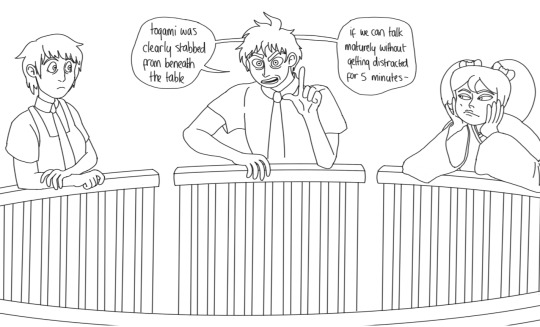


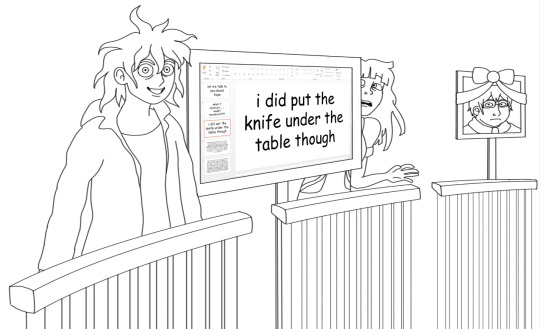
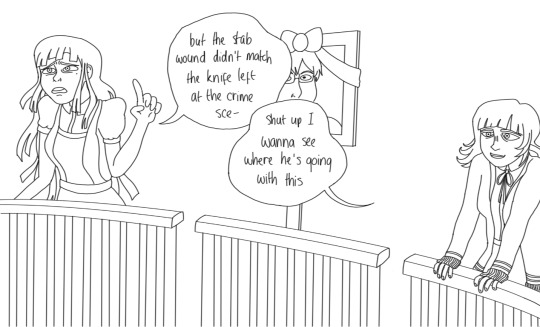
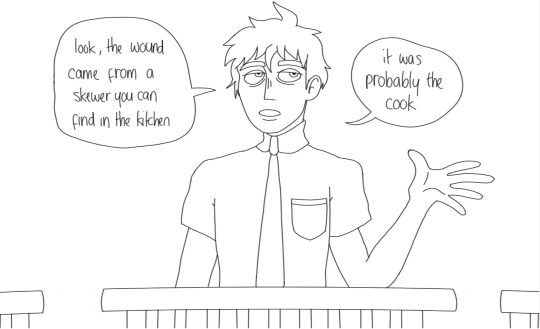
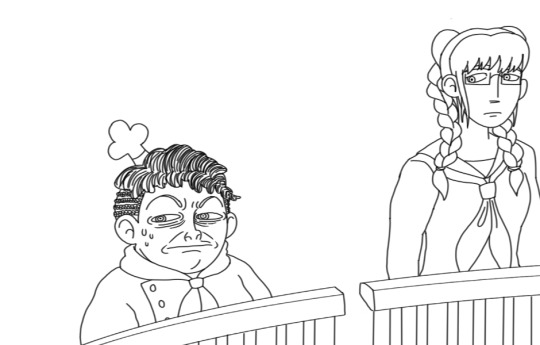
chapter 1 trial
#i think my biggest achievements in making these was being able to condense the trials into a few basic panels#each trial ended up needing more n more dialogue but seeing how long the in game trials are im pretty proud of myself#i only did ever sketch out the first three trials tho my sketches have taken me just up to the chapt 4 trial which i ever started at all#oh also i made sure to always keep the order of the characters in the trials true to the game#everyone is placed in the exact same 'seats' as they are in the real game#that was tough at times bc sometimes i wanted dialogue between characters who were nowhere near each other#but it was also a good opportunity to make me use characters i normally wouldnt have thought to use#and i couldnt just give dialogue to my favourite characters lol#and sometimes it worked out really well where the characters i wanted interacting did happen to be next to each other#sdr2#super danganronpa 2#ok here we go#hajime hinata#teruteru hanamura#mikan tsumiki#chiaki namani#nagito komaeda#peko pekoyama#is that everyone#mahiru koizumi#there we go#my art
1K notes
·
View notes
Text
my old blorbos are back in my brain
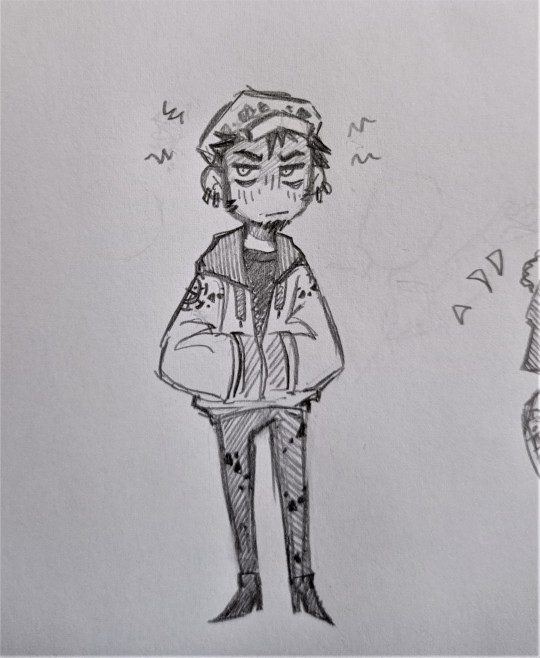
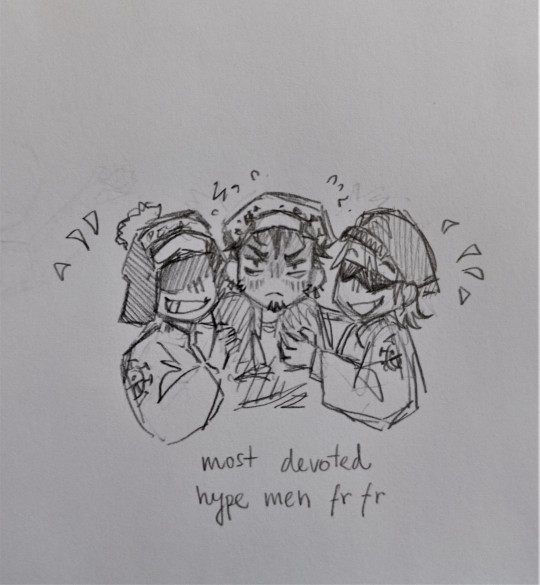
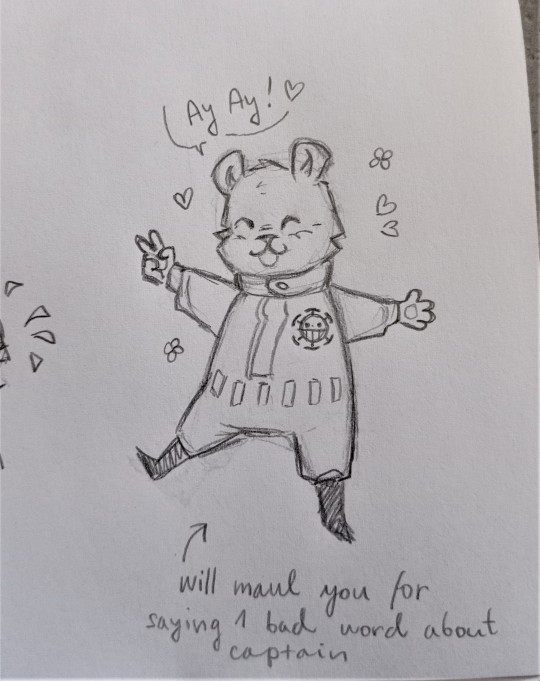
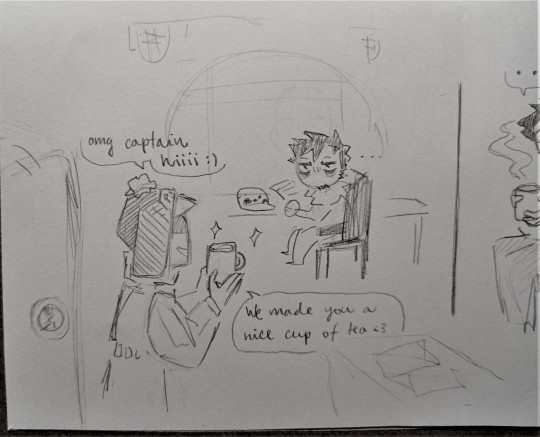
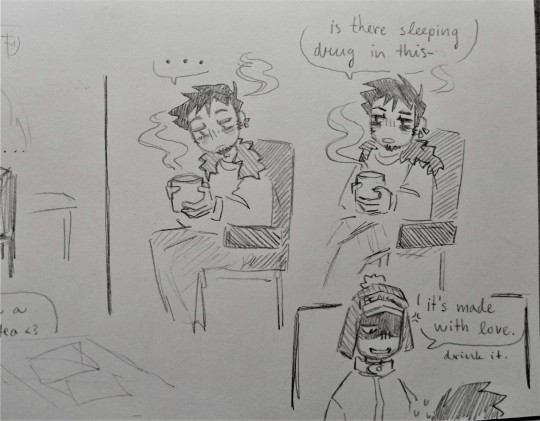
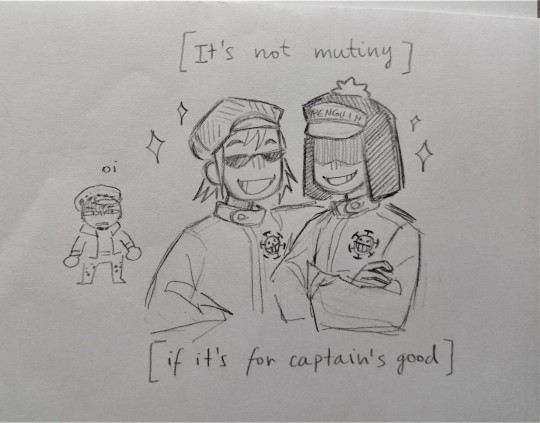
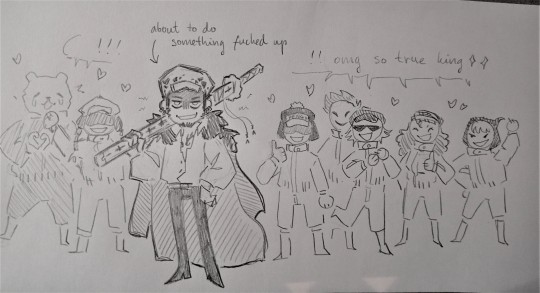

heart pirates my absolute beloved. shame theyre chillin somewhere in the ocean lol (do not mention the pre-time skip hats of penguin and shachi I'm still attached even tho its already been a million years since then)
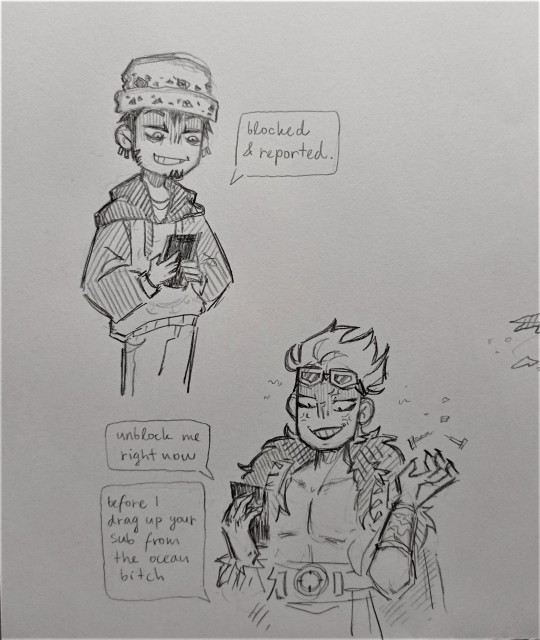
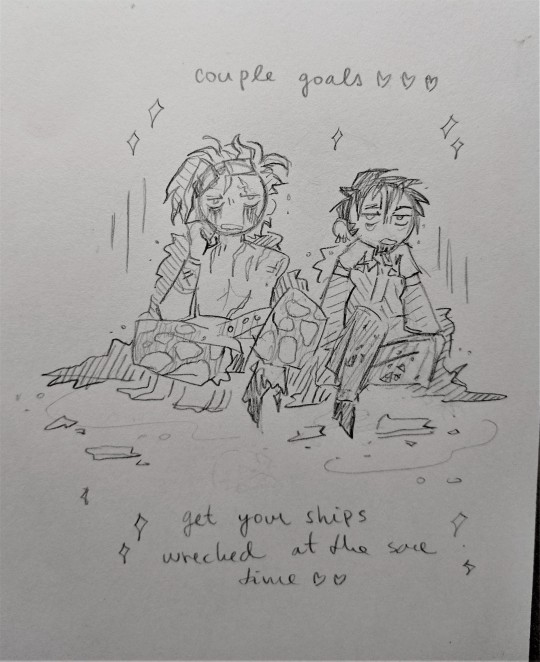
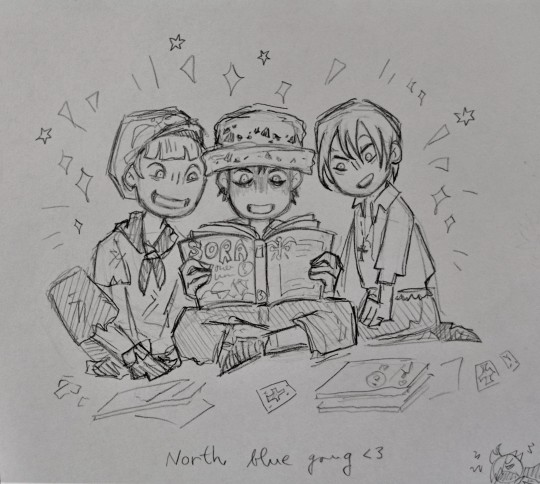
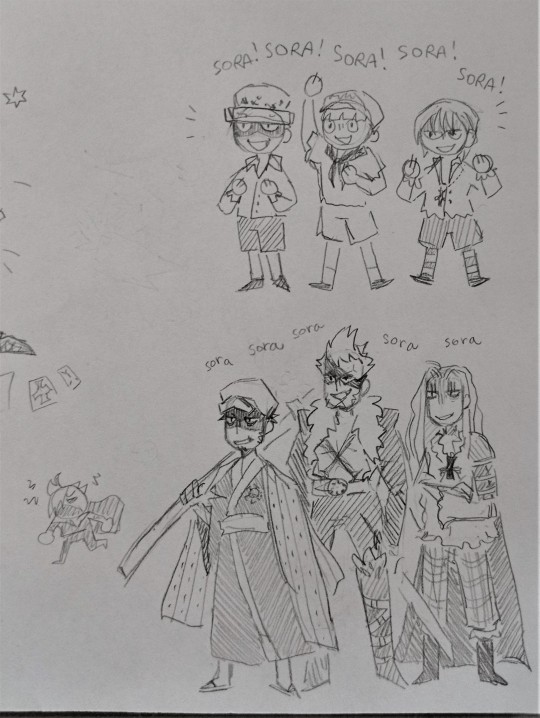
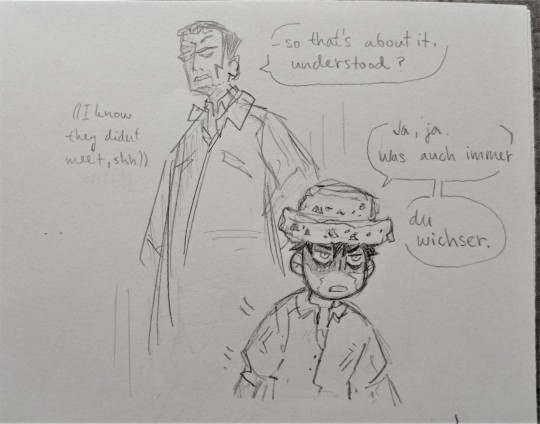
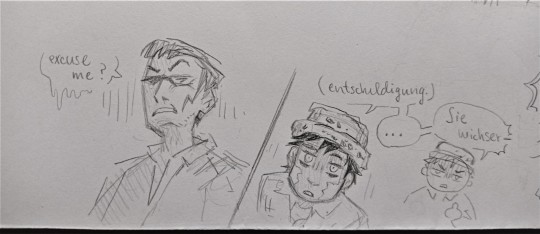
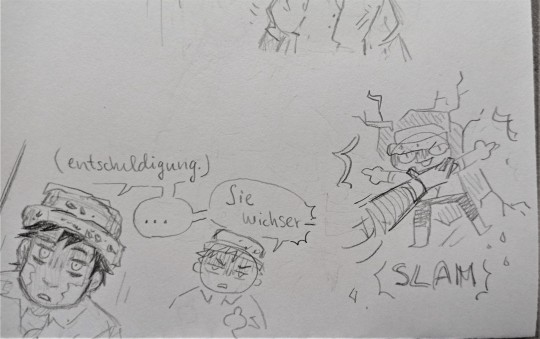
anyway every time i remember that Law and Kid are assigned german and Scottish by Oda i gain one hundred years
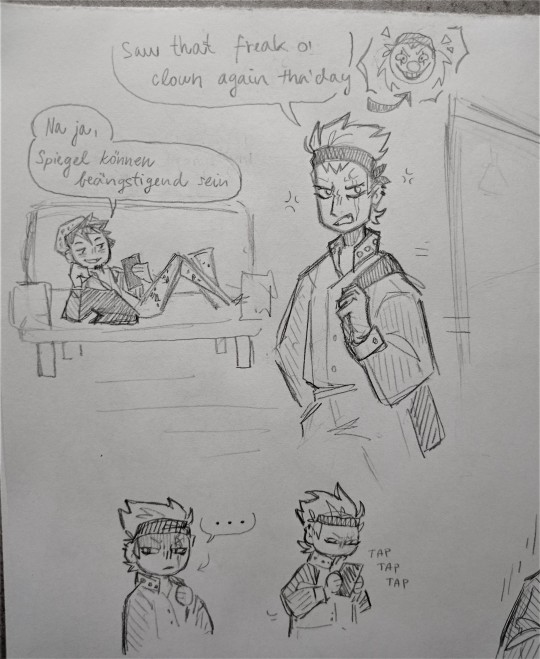
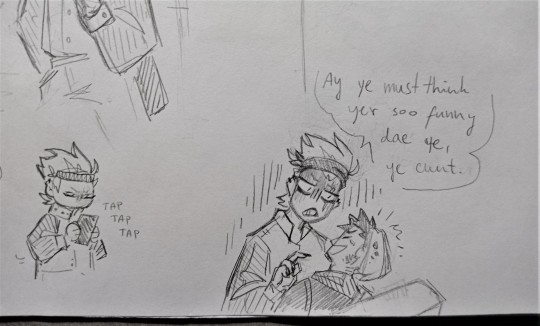
#one piece#trafalgar law#heart pirates#penguin#shachi#kidlaw#weary sigh- i am never getting out of this place#OP has been in my brain since -checks watch- like 2016 I think? and there is no escape#like every few months this stupidass anime/manga just grabs my brain again for a month or so hdjkhkd#its terminal#anyway as a long time enjoyer of heart pirates-crys-hjdsfhkdhfk#i come back after a long time and this is the status update i get??? anyway fly high polar tang o7#btw if theres any mistakes in the german bits I'm sorry i did study german for a few years as my third language of choice but#im not super confident in it so hdsjfhk sorry#but the first bit with vergo is partly a reference to a meme that i saw some time ago and that completely took me out#and should translate i think into 'yea yea whatever. you wanker' and 'sorry. you(formal) wanker'#hajsdhkd#and the one with kid hopefully says 'oh yeah mirrors can be scary'#oh well and thats about it cheers#id say read one piece but actually dont its at 1088 chapters now#and just the catching up that i did in the past few days absolutely took me out lmao#but hey this is prolly my oldest going-on fandom that i still feel the need to come back from time to time lol o7
638 notes
·
View notes
Text




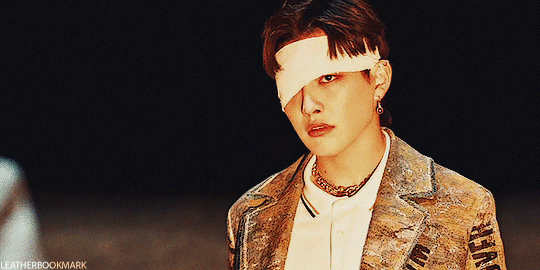

(in which the caption is a picture)
bonus (my girlfriend):

#shrimp gifs#hongjoong#seonghwa#yeosang#mingi#wooyoung#san#ateez#kpop#LEGIT. WHAT'S. GOING ON. they're so stone-faced and/or almost wary of each other. no 'oh shit captain you're alive! hooray!'#just. hwa hopping down and tossing hj the duffel bag. and the look hj gives him looks almost pained? though i'm super bad at telling#emotions from faces so idk BUT LIKE. GOD#there was a fic that played with this a bit. like it had hj trapped in the house AS WELL AS a time loop or sorts and it took LONG for him t#get out so when the lads finally reunited with him they didn't trust him fully at first because Man What Happened To You#it was so good. i should find it again OTL
92 notes
·
View notes
Text
I see your Bruce adopts Billy au and raise you Diana adopts Billy while Bruce hovers on the sidelines playing godfather who has the adoption papers ready if something bad happens. Jon also gets this treatment.
#batman#look i get his name is BATson but you have a little guy with the blessings of multiple gods and one of his patrons daughter Right There#she'd call him her ward though#bc she'd respect he had loving parents and that he has taken care of himself for so long. like going from no mom/dead mom for 6 years#diana originally meeting captain marvel was like a cousin situation. shes like oh cool you are family now you get no choice#then billy gets aged revealed and shes like oh you are now immediate family.#diana and clark are touched that bruce has their back with their kids#theyd extend the offer as well if bruce didnt have 100 kids and half were already fully grown adult's#clark was super ready to step in during dicks younger years tho if smth happened to bruce#billy batson#wonder woman#shazam#bruce wayne#captain marvel#diana prince
199 notes
·
View notes
Note
Do you do drawing requests? If so. Liquiroot? If not, I hope you have a lovely day and get cake, I hope you get cake even if it is yes lol
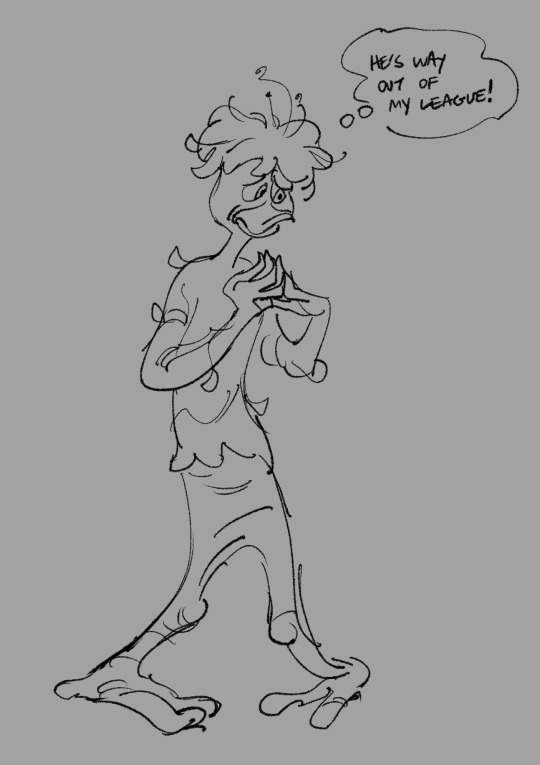

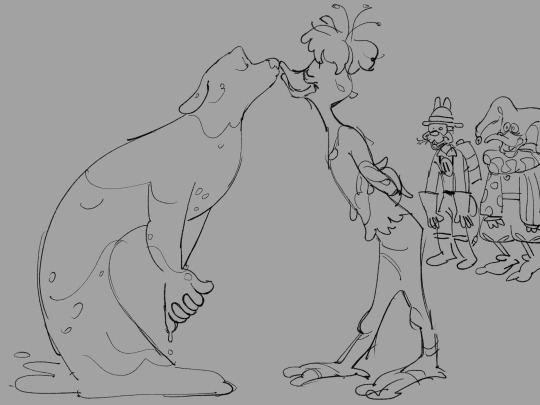
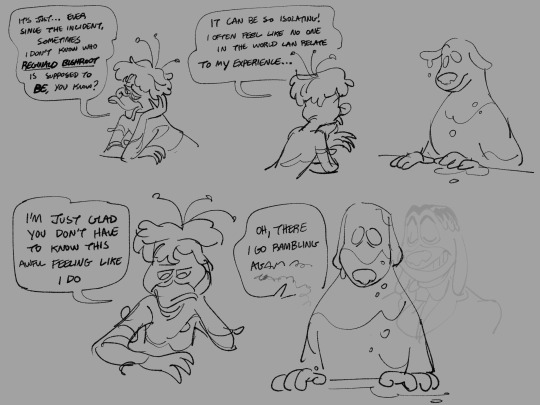


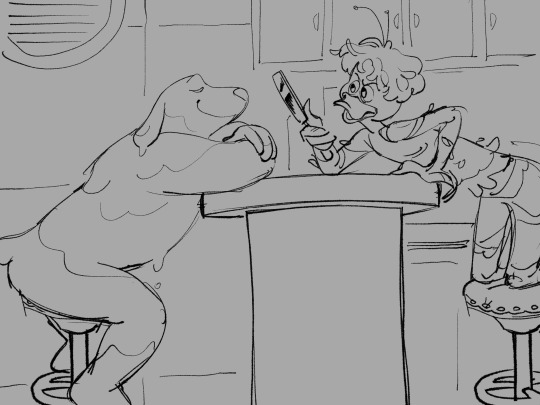
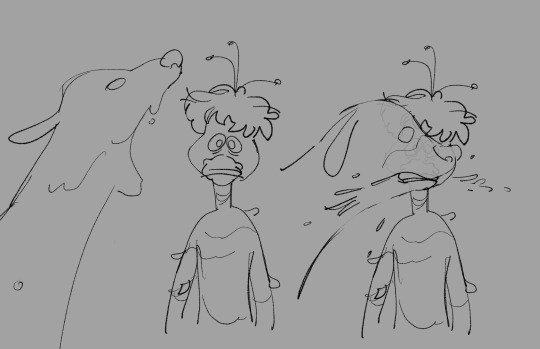
i don’t like most of these so i just kept drawing in order to get them Right but i don’t think i ever did LAWL
however anon thank you SO much for requesting this bc it gave me an excuse to draw them more <3 i love reggie and bud but i haven’t quiiiite figured out their dynamic yet so drawing them together is a bit tough. i’d love to sit and listen to a liquiroot enjoyer talk about them though like i’m intrigued. me when there’s a plant guy and a dude made of water 🫶💕🌅
#oh also THANKS FOR THE CAKE!! funny enough i had cake not long after you asked this haha!! it was delicious <3#asks#anon#liquiroot#bushroot#liquidator#darkwing duck#dwd#no id#giddly’s art#i really . really rlly don’t like some of these sketches lmaoooo but i have so many so i might as well share#oh and sorry these aren’t super shippy but i’ll get there. mark my words i Will understand them
163 notes
·
View notes
Text
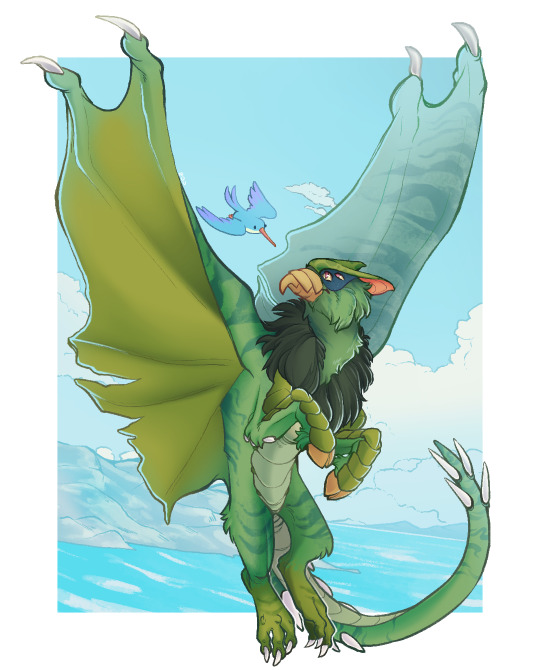
caw 🦅
#neopets#neotag#neoart#eyrie#mutant#vin doods#I can't beat the allegations that i doodle dnd creatures on a daily with this one huh#god i love mutants eyries so much i'm sorry i gavehim more draconic features but uGH;#what great colours lmao#I also gave inverted knees to the hooves cause i aint doing whatever neos doing#can you tell i have a thing for dnd and dragons in general im so sorry JAKLSDF#also in topic i've been so wanting to make a neo player's manual for so stupidly long its insane#might actually do it at one point#i had species and proficiencies and everything at one point i think its all gone lol#also for a fact that i'd be a me-thing for the most part#like i'd be the only one wanting it or playing according to it#my other friends none like neopets so yeah#god do i want to dm a neopian adventure i have tons planned lmao#but oh well#i'm super greatful for all positive commenta ad every like and reblog you guys ave given meeeee#i sound like a broken record but i swear i try to not leave this blog for long but i always read your tags and crack up to them sajhas#i know i've left a couple of you on read that actually wanted to know about my characters BUT IM SO SORRYYYY#my master's taking so long and everytime there's something new and have to rewrite and replan everthing everyday i hate it here#but i will do it#i know i will#both the lore writting and my thesis HASJKHASJS#anyways if you're still reading dont be afraid to shoot up a couple of messages! It might make this blog less dead
59 notes
·
View notes
Text
Thinking about stranger things again now that the strikes are over and how, narratively, it would be way, WAY cooler to have Mike get Vecna’d instead of Will in s5
It’s just something about the way Mike’s trauma is never addressed or handled in any way?? Like, he hugs his mom twice and then when he was depressed in season 2 and 4 nobody did anything (his parents scolded him for his behavior in s2 ig but that’s not support). His best friend went missing leaving from his house, he watched his body get pulled from the quarry, watched El (in his eyes) kill herself stopping the demogorgon, watched Will be possessed, saw Bob die, was in Star Court when everything went down, saw Billy die, had his best friend move away, was SHOT AT (and really too few people talk about the shooting in Cali bc omg??), buried a body, and watched the apocalypse start. And that’s just off the top of my head.
(And yes I’m aware that the other characters (especially Will) are traumatized too but I will get to my point in a second just hold on)
The plot is geared towards this idea that Will and Henry have to have some big face off (and they should, in my opinion, but I don’t think it should be in a possession, or at least not the the Vecna kind of possession, yk?) but that makes it all the better, writing wise, to have mike be the one in danger. Will was helpless and hiding in s1, I think Will should get his big strong moments in s5 where he gets to be the hero of the story.
It would just be a lot more fun to work with Mike being Vecna’d than Will, because what are we going to bring up with Will’s visions? His dad? His sexuality? The events of s1 from his perspective? It would be cool to see, for sure, but we already know most of that. Mike, on the other hand, has a number of untapped things, like jumping off the quarry, why he’s so hesitant to tell El he loves her, how someone who was smart and kind enough to take El in in s1 and come up with the spy and sauna plans in s2 and s3 could turn into the oblivious asshole that he was in s3 and s4 (he needs therapy, ik, I still love his character but I want to explore the reasons he went from his s2 characterization to his s3 one)
It would be a very interesting parallel, I think, to explore Mike’s thought processes in this way, especially with all of Mike’s repression business (bc whether you ship byler or milkvan he is repressing his feelings HARD. Like, beyond his inability to say I love you there’s the fact that he doesn’t bring up the apparent many times he called pre-s4 during the Rink O Mania fight?? That literally would’ve absolved him of guilt in that argument since he WAS reaching out to Will the whole time? Hellooooo????).
Anyways, this all brings me to my main point: Vecna targets isolation as much as he targets trauma and guilt. The whole party was traumatized by the events in s1, s2, and s3, but Max was the one targeted. Plus, Henry went for Fred, Chrissy, and Patrick (I think his name was Patrick) instead of going for the perceivably easy targets that the mcs would make (ik narratively that would’ve made it more boring but shhh), so why Max and those three specifically? They were isolated. Lucas and Erica have each other, Dustin goes to Steve and Robin, Will and El have each other and Jonathan and Joyce, Nancy probably goes to Jonathan, and who does Mike go to?
No one. And don’t say Nancy because if those two have heart to hearts then I’m the next coming of Christ. Max separated herself from the Party in the aftermath of her grief and guilt over Billy, and it feels quite obvious that Mike was doing the same (like I said, he has repression issues). So Mike is traumatized, alone, and guilty (be it Will getting taken from Mike’s house, losing El in front of him multiple times, the many deaths he has witnessed, or the internalized homophobia angle), which makes him more of a target than Will, in my opinion (or at least an easier one, especially given his tendency to put himself on the line during fights (quarry, most of s2, s3 mindflayer fight), which would set him up on the suicidal ideation path)
Furthermore, as I’ve seen a few other people point out (and I can’t find the posts but one of them had eight screenshots of the various moments), Mike is always the one getting in the way, so it would be a strategic move for Henry to target him to get him out of the picture. Mike was the one that found El and got her involved in saving Will s1, he was the one who came up with the spy plan and called out the ambush in s2, he was the one to monologue Will out of his possession s2, he was the one with the sauna plan for Billy in s3, he was the one trying to help El get the strength to fight s4 (even if the monologue sucked ass it’s the intention that counts). As much as people like to hate on Mike, he is in the leader position most of the time when the party is grouped up (barring his mental health struggles slowing that down beginning of s3 and throughout s4, but he’s still capable of it). He’s the idea man, and he’s the one whose character’s foundations were built on the desire to keep his friends safe, so it would be a very fun plot line to watch him be the one targeted in s5. Like Will said, as lovestruck and cheesy as he was, Mike is the heart of the party when he’s on his A-game, so Henry should 100% be trying to keep him in the issues he’s been struggling with.
Obviously, Will and El are the Targets with a capital T for Henry since they’re the ones that got away or whatever, but I think Mike is a weakness of Will’s (and El’s tbh but also I think they need to have separate character arcs and I don’t exactly ship milkvan) that should be exploited.
TL;DR: Mike should get Vecna’d instead of Will in s5 because it would make sense in lore and be a very cool way to resolve his character arc
#wow this ended up being super long for no reason oops#I meant to stop at the first paragraph#oh well this was a lot of fun to type out at midnight haha#and I don’t see enough people talking about or exploring this concept#percy speaks#stranger things#mike wheeler#will byers#eleven stranger things#el hopper#vecna#lucas sinclair#dustin henderson#max mayfield#byler#character analysis#stranger things analysis#byler analysis#ish#I’m a byler shipper at heart but it wasn’t the main focus sorry
126 notes
·
View notes
Text
Little reminder for the people who forgot Kieran is 14 years old FOURTEEN meaning that any suggestive content of him automatically makes the poster of it weird as fuck ESPECIALLY if they are an adult but even if they are a minor posting suggestive stuff of a fourteen year old is still super weird so maybe don't do that
#kieran pokemon#pokemon indigo disk#rival kieran#pokemon dlc#pokemon teal mask#kieran sv#trainer kieran#pokemon kieran#IVE FUCKING HAD IT WITH THE R34 AND SUGGESTIVE SHIT OH MY GOD IM SO DONE STOP IT EVERY DAMN SITE I GO ONTO ITS ALWAYS HEY LETS GO LOOK AT#KIERAN FANART THAT SHOULD BE FUN! and OH DEAR GOD THATS R34 OKAY! HOW ABOUT WE GO LOOK ELSEWHERE AND OH! HAHA THATS AN ADULT SHIPPING#THEMSELF WITH KIERAN A FOURTEEN YEAR OLD OKAY WELL HOW ABOUT I GO LOOK AT FANFICS AND HCS? AND OH OKAY WELL THATS SUPER SUGGESTIVE EVEN THO#HE IS FOURTEEN HAHA! FUNNY GUYS SO FUNNY SO HAPPY FUN TIMES LETS SEXUALIZE THE FOURTEEN YEAR OLD!!!!!!#Like duh no shit it's the internet I can't stop it but at the same time fucking knock it off? It's not that hard and as long as it's there#You will see me ranting about it because it's not okay it's just not Im just so done with seeing it please leave him alone
71 notes
·
View notes
Text

[ID: An edited Tumblr post. Someone says, "does anything happen in the Death Note musical or do L and Light just sing duets at each other?" Another person replies, "other things happen but they aren't as important". End ID]
#anyways listen to the death note musical if you haven't already#you don't have to watch the show first I just read the wikipedia page#it was confusing but I was fine#It's not super long and most of the songs are pretty rock inspired? Anyways it's really cool#death note#death note musical#death note musical concept album#that's not a tag oh well
507 notes
·
View notes
Text
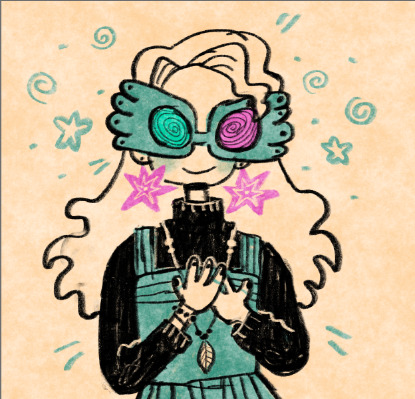
⟡ luna ⟡
#doodles#ive been rushing to make new examples for my new comm system and luna was born : )#im super happy to finally draw her!! ive been wanting to draw her for so long but i kept getting distracted hahha#<< the story of my art life tbh XD oh well im glad to finally draw her now!#luna lovegood
80 notes
·
View notes
Text
Nothing's Wrong with Dale: Part Seventeen
It’s been a week, but you’re fairly certain your fiancé accidentally got himself replaced by an eldritch being from the Depths. Deciding that he’s certainly not worse than your original fiancé, you endeavor to keep the engagement and his new non-human state to yourself.
However, this might prove harder than you originally thought.
Fantasy, arranged marriage, malemonsterxfemalereader, M/F
AO3: Nothing's Wrong with Dale - Chapter 17 - MoonshineNightlight - Original Work [Archive of Our Own]
[Part One] [Part Two] [Part Three] [Part Four] [Part Five] [Part Six] [Part Seven] [Part Seven.5] [Part Eight] [Part Nine] [Part Ten] [Part Eleven] [Part Twelve] [Part Thirteen] [Part Fourteen] [Part Fifteen] [Part Sixteen] Part Seventeen [Part Eighteen] [Part Nineteen] [Part Twenty] [Part Twenty-One] [Part Twenty-Two] [Part Twenty-Three] [Part Twenty-Four] [Part Twenty-Five] [Part Twenty-Six] [Part Twenty-Seven] [Part Twenty-Eight] [Part Twenty-Nine] [Part Thirty] [Part Thirty-One] [Part Thirty-Two] [Part Thirty-Two] [Part Thirty-Three] [Part Thirty-Four]
“My lady,” you hear Grandfather say from somewhere behind you. Bracing yourself, you resist the urge to turn around and instead prepare for another uncomfortable conversation.
Grandfather has managed to invite—or find those already invited—anyone who has the remotest affiliation with the study of the Depths or herblore or spiritual matters and promptly introduced you. He then pays particularly close attention throughout the conversation to you and them. You think he’s hoping someone more versed in such things might be able to sense or notice something about you or Dale that will prove his theory about some sort of demonic influence affecting you correct.
Luckily, none have acted odd so far—that you could tell. Instead it just makes for sudden, very nerve-wracking conversations where you feel more than ever like you are on a stage, performing. You dislike galas and balls and such already—these new examinations are not helping, except that occasionally after one, the rest of the event feels far less tense than before in comparison. At least Grandfather doesn’t seem to be preparing these individuals ahead of time with his suspicions.
Also, to be fair, Grandfather seems to have pulled back with his other methods of detection. There have been no more overly spiced meals or suspicious flower arrangements—baring the first ball in Connton which had been covered in white roses. Dale thankfully continues to give no signal he knows either of you are being tested, but he’d managed to smoothly tuck a flower in your hair. Your blush at such an obvious display just to show the flowers lack of effect had hopefully helped sell it. Dale even pricked himself on a thorn to show it had no poisonous effects to himself and demonstrate his blood is still red. You think you’re the only one to notice that his bandage is removed only three days later—and that it was on the wrong finger for the last day.
You’ve gotten this far though. One more conversation won’t be the end of it all, you try to remind yourself. You turn with a polite smile on your face to see Grandfather walking towards you with a sanctif at his side. You hope your face doesn’t give away your sudden apprehension at being confronted with an actual spiritual leader. The white and red robes mark him as likely the High Sanctif for all of Connton. Also, he’s older than Grandfather, which doesn’t bode particularly well either.
While the spiritual colleges in the north in recent years have moved in a more scientific direction—away from philosophy—the more older and southern sanctifs are far more likely to preach anything associated with the Depths as inherently dangerous, rather than something to be understood.
Which is probably why Grandfather is helping this sanctif into the seat next to you.
“His Illuminance, Ellon of Connton has found the time to join us for the next course,” Grandfather says as he sits down opposite you. This particular feast has many courses, with seating on various tiered daisies each with five or so smaller tables, between which guests are encouraged to switch seats so that all may socialize—within their daisies, of course. You’ve ended up staying primarily where you are as there has been no shortage of companions, as had Dale.
However, as it is nearly time for the next course, it appears he’s staying down with the transportation officials—a pity because you had wished to talk to them as well and there is no longer enough room for all of them. Perhaps it is a good thing because you doubt this sanctif is going to have anything particularly good to say. At least Grandmother has also been pulled away by some magistrates or she would no doubt make matters worse.
You nod politely to the sanctif. “Greetings, your Illuminance. How are you doing this evening?”
“Greetings to you as well,” he replies, his voice is stronger and brisker than you expect given his age and the distracted way he has already begun searching for the wine jug.
Once his eyes land on the jug, he reaches for it, but is at a bad angle for him to pick up well, so you stand up yourself. “Please, allow me to assist you.”
“My thanks, my thanks,” he says, sitting back as you pour him a glass of wine, then one for Grandfather, since he is also new to the table. A cousin of Dale’s to your left still has half a glass and so does one of his aunts.
You start to relax when only polite small talk is made while everyone else begins to settle into their seats. You’re happy to discuss the weather and food as many times as you need to because at least you don’t feel like you’re going to say the wrong thing.
It doesn’t last though.
“So, where do you hail from, my child?” Ellon asks as he butters a roll from the ever-refilling baskets on the table, the knife making a scraping sound against the butter dish which you try not to wince at.
Swallowing down your inappropriate offer to prepare it for him yourself just so the noise will stop, you tell him, “My family fief is Portsmith and with the bay of Glittany.” Glittany is what most have heard of when it comes to your family since it is the name of the bay and the major seaport city. Most barely are aware of the name of the fief it resides in.
Ellon seems to have heard of it, but, given the skeptical huff he lets out at the name, not positively. “Those that live on the seas court death, if you ask me.” You most assuredly had not, but you didn’t think he much cared if you had. “The Depths are most clearly expressed there, below those treacherous waves. Even close to the shore, it can steal the unwary away far too easily.”
You knew there was a certain amount of superstition about the deep waters among some, but while all those who worked on the seas had a healthy respect for the sea, none blamed the Depths. Biting your tongue so you didn’t mention that the places in the world where the border was thinnest were primarily above solid ground, you merely say, “I am certainly no sailor, though I admire the bravery of those who are.”
He wags his finger, looking over his thick spectacles at you. “Mark my words, even living for so long with that salt air is dangerous. Why the great scholar and sanctif, Malarby of Airs said that those along the shore twice as likely to be taken than those who do not.”
You again refrain from saying that the scholar he speaks of had numerous critics during his own time, let alone now. At least, Grandfather seems skeptical of this claim, but it's also obvious he’s watching for your response more than anything. “My understanding is that the Glittany sacred community has procedures and safeguards in place to limit any such influences, however, I admit that I did not grow up in the city. I was not often well as a child and so grew up on our country estate, which is more than a day’s ride inland.”
“Yes,” Ellon agrees loud enough you flinch at his volume. “It is truly heartening to hear that some physicians know the healing air that can only come away from the watery death that surrounds us. Country air is not as fortifying or pure as mountain air, but I am sure that it was the best for you.” He pats your hand in what you assume he believes is a comforting manner and resist the urge to pull away. “We must find balance between keeping our family, our connections, with us in times of struggle and finding a truly blessed location where we can heal—as far from the physical negative influences as possible.”
“I do believe it was a far calmer environment to be in and my physicians were all very skilled,” you reply, not wanting to touch on his spiritual opinions. Were they more than opinions if they were from a sanctif? Regardless, you know the Glittany santifs didn’t talk like this, probably because they actually live and work next to the sea. You would pay money if this man had ever even been on a boat—or that he had and had simply immediately gotten seasick.
“I was not aware the sea was so treacherous beyond the literal dangers it presents,” Grandfather observes mildly, likely not wanting this topic to die when it is so close to where he likely wants it to go.
Unfortunately, that is all that Ellon needs as encouragement to continue in this vein. “Of course, anywhere the veil between the realms is a danger—whether man-made or natural. And while it is one folly to invite demons in yourself, it is another folly to go where they thrive. The chances of being taken in by such beings, of bringing home those who have stolen away, are far greater on the waters than on the land.”
Ellon is clearly enjoying the captive audience he has and you while you don’t believe any of this nonsense—you’d still rather he talk about the dangers of oceans than anything else related to the Depths. Without him asking, you refill his wine glass for him.
He nods his thanks with a smile and seems to really warm up to the topic, his voice growing a touch more theatrical as he says, “Beyond the threat of death from such supernatural dangers, there is the general threat of death from the natural. With that, there is the metaphysical danger which haunts these vessels. Many bodies are lost at sea, falling below those frigid waves—it is a far harder journey for the soul to ascend after death. Many no doubt, do not reach the light.”
Grandfather blinks at Ellon, clearly taken aback by this turn. “…I see.” From your observations, Grandfather does not have much interest or patience for the philosophical nor the spiritual, to your understanding, until recently. While spiritualists often warn against the Depths, Grandmother’s motivations and grudges seem to primarily come from a literal danger perspective, given the way demons and such influences have been used for violence—not hypothetical dangers to the soul.
“Are you saying that after death the soul can be held down by water?” a polite but skeptical voice interjects. You turn to see that Francesca, one of Dale’s cousins, has decided to join your conversation.
Ellon looks surprised by her question, but rallies quickly enough. “It is not the material involved but the distance, the fact that one is already below.”
“Then would not miners be similarly endangered?” she asks, raising one eyebrow up quizzically.
You know she hasn’t specifically joined the conversation to help you out, but you can’t help but feel like she has and it warms you to her. You are an adequate debater when prepared and a hesitant one when unprepared.
Ellon frowns at her argument, pursing his lips. “A miner can be brought up by his fellow workers and still cremated.”
Francesca hums, leaning back in her chair consideringly. “Is cremation truly so necessary? I know it is best practice, but I thought it was primarily for those left behind.”
“No, no,” he says, his mouth a grim line. “It is for both, the living and the deceased. The soul can be trapped if the body is not taken care of properly.”
“I see,” she replied, for all it’s very clear to you she’s still skeptical. “I was unaware that the body could become such a cage to the soul after death. I thought it was taught that death itself is what releases the soul from the body.”
That causes the sanctif to bristle. He make a show of frowning thoughtfully and drinking some more wine before grudgingly admitting, “Well, yes, that is the primary mechanism. And if there were no Depths, cremation would likely be unnecessary. However, given that there are forces working to keep a soul from ascending, we must do all we can to aid the deceased on their journey.”
“Pardon me,” you turn to see Francesca’s husband leaning towards you as well. “Are you proposing that denizens of the Depths or perhaps even the realm of the Depths itself can reach out to consume the souls of those born here based on location or method of death alone?”
“Of course not,” Ellon blusters, cheeks turning a bit red, “but the effect such things have on the soul are undeniable, beyond ill deeds weighing a soul down.”
“Actually, a recent paper from the Rokea Institute has called that into question,” Francesca says. “According to the scholars—”
“You trust one scholar over thousands of years of spiritual practice?” Ellon asks, his tone a mix of condescension and offense. “Scholars these days think they can measure and categorize and label each phenomenon they encounter and the second something cannot be so neatly sorted they fit it in where it does not belong, ignoring contradictory evidence. Rokea is among the worst for encouraging this type of thinking. Even the thinkers out of the Ha are more reliable in these modern times.”
Before anyone else could interject, he continues, “They decry hundreds of years of carefully documented experience, only relying on what they and peers they deem worthy have personally seen. They waste time questioning fact and reinventing the parts of the past they personally approve of to claim that knowledge as their own new discovery.
“Not to mention the poison seeping into the Vaomen universities.” That seems to be more what Grandfather, and you, were expecting rather than a spiritual debate about the nature of souls. “What used to be sole bastions of rational thought against their poor country’s perverse deal with the Depths has fallen to its influence rather than the reverse. They push aside safeguards and time-tested tools to allow demons full citizenship. How many times much a school, a city, a nation fall to those beasts and devils before this world learns its lessons?”
Francesca’s gaze darts to her Grandfather, likely fully aware of his and her grandmother’s opinions. As he does not look particularly upset, she cautiously says, “I’ve heard of no recent incidents at their colleges.”
Ellon scoffs. “Of course you haven’t. They are too arrogant, too proud to let such truths out into the world where they would be recriminated for their folly in front of all other accomplished and rational thinkers. They keep any word of failures and dangers to themselves unless they can be justified sufficiently. The deans of such institutions have fallen to their own pride and hubris—mark my words.”
The only good part of all this talk is that even Grandfather is beginning to look aggrieved, as though—perhaps—he might regret having sought out this specific sanctif, for all he’s certainly anti-demon. Grandfather is no believer in conspiracies, thank the light.
“I have always held that any interaction with the Depths is inherently dangerous to the soul even when my contemporaries disagreed,” Ellon puffs up as he says so, clearly proud of going against popular opinion in this and you resist the urge to roll your eyes. “To see the world move so firmly in the wrong direction is disheartening, even with bastions of true spiritual stalwartness such as Northridge attempting to keep our country secure from incursions from Below.”
Both of Francesca’s eyebrows raise at that particular choice of words and she exchanges a suppressed but amused glance with her husband.
“Certainly proper precautions must be taken,” you take the time to say, hoping to move the sanctif away from more vehement proclamations. It also can’t hurt Grandfather’s impression of you to say the things you do believe. Just because matters have worked out, does not mean that they could easily not have. “Those who remove safeguards are truly foolish and we can only hope their lapses do not endanger more than themselves.”
The original Dale put his entire home in danger with whatever plans he had and you have no doubt he ignored safety measures as unnecessarily limiting, just given your assessment of his nature up to that point.
“Precisely,” Ellon nods with a smile for you. “Demonic influences are more common than anyone would like to admit and so one must be persistently wary and alert.” He punctuates this with raps on the table—luckily not nearly hard enough to knock anything over, though your hand automatically goes to your glass all the same. “The number of easy, necessary, precautions the everyman does not bother with is astounding. Of course, I must be even more careful, given my position as a person of faith and a lighthouse to others.
“Oh?” You don’t think he’ll need much more than that to continue. It's clear Francesca and her husband have lost true interest in what he has to say, writing him off as an eccentric. You can only hope their skepticism inspires Grandfather’s own. They’ve turned to talk to the companions on their other sides—unfortunately with two empty seats still on the sanctif’s and Grandfather’s other sides, there is no such easy diversion for you.
You’ve never been more relieved to see plates of fish being brought out in your life. Unfortunately, that relief is quickly dwarfed by the nerves that spring up to see Dale making his way over to you with a lady—bound for the openings still at your table.
“Yes, yes,” Ellon says, snapping your attention back to him. “Take meals for instance. I shall demonstrate as it is easily one of the times people feel most comfortable and yet are at their most vulnerable.” He begins digging in his pockets while Dale gestures the woman with him to the seat next to Grandfather.
As Dale takes the seat next to Ellon, introductions fly around—the lady is some sort of minister for Connton—and the sanctif’s is primarily distracted, but still polite. Dale gives no hint of nervousness at being introduced to a sanctif which is a good sign and—Ellon gives no indication he knows he’s just been introduced to a demon possessing a lord, so that’s good as well.
“Sanctif Ellon,” Grandfather says to the two latecomers, “would like to show us a device for…what was it again? Detecting poison or demonic influences of some kind?”
“Yes, quite right—both,” he says without looking up from his search. Dale goes a bit still at Grandfather’s words, but you think it is only because you are paying attention that you even notice it. Unfortunately, Grandfather is paying attention too. Still he’s further away from Dale so perhaps he didn’t.
“Here we are,” Ellon finally pulls whatever he has been looking for out of his robes. He seems to be brandishing a small circular glass, not unlike a monocle or other magnifying device, although it looks rather cloudy—or perhaps dirty?
“It took me years to develop and find the right minded people to help me in our research,” he seems to be turning sections of the small handle and the glass gets more opaque. “It’s still a little temperamental, a bit slow, but as I tell young people,” he wags his finger at you in particular as the youngest person near him no doubt, “life is all about patience and the determination to see something through.”
“Now, in addition to showing poisons in food,” he points to the dish of fish now before him. All have you have been served, but those in seats adjacent to Ellon have refrained from eating—even Francesca and her husband on your other side seem to be intrigued with your conversation once more. Likely because the sanctif is no longer moralizing and is instead explaining something practical. “It can also show possession in humans.”
He turns his head to look over all those around him and you feel your anticipation tighten. He ends up looking directly at you. “Pardon me, my lady, but would you mind helping me with this demonstration?”
While you are nervous at being the focus of some sort of demonstration, you realize it’s an infinitely better option than Dale. “Of course not,” you reply, your voice seemed steady enough, right?
“Now, for the resting state, the glass starts off as murky and gray,” Ellon gestures with the device, moving it around so everyone can see how gray and fogged over it is. Before he pushes some things aside and takes your hand in his free one, laying flat on the table. “But as I hold it over her hand,” he holds the glass steady over your hand. “It fades, leaving only a red-ish tinge over her hand.”
Indeed, before your eyes, the fog grows less and less thick, getting a faint red tint, like clouds lit up by a fading sunset. “This proves her to be human. The lack of color on the other objects in view shows them as non-living. Demonic influences would cause the smoke to darken from the original light gray or even blacken if held over a true demon.”
Everyone murmurs as they take a look and you make a purposeful effort not to look at Grandfather and see his reaction. Maybe this was a good thing after all, some proof he might believe. After all you truly aren’t influenced by demonic anything—beyond new Dale’s personality, you suppose.
After a moment when the effect seems to no longer intensify, he pulls away and you take your hand back, feeling more relieved than you have in days. “To reset it, you merely agitate the vapors once more.” He shakes the glass so it fills with fog again. You move to lean back in your seat, rather limp with your relief when he turns to his right, turns to Dale. All that tension is shoots right back up your spine, when he pulls the glass over Dale’s left hand, resting on the table. “After this quick refresh, it is ready to be used once more.”
Unfortunately, unlike with your hand, the fog does not lighten or dissipate. Instead it continues to swirl, perhaps from the sanctif’s motion, but also likely because of Dale himself. You can barely breathe, you refuse to look at Dale’s face, as the sanctif frowns. The fog gradually grows darker “Hm, sometimes it can get stuck so to speak. Nothing a good shake can’t fix.”
He pulls the glass away and shakes it even more vigorously than before. Your eyes can’t help but dart to Dale, who appears to be staring at his hand, but almost unfocused—like he’s concentrating on something you can’t see. You hope he knows some way to deceive this little device because otherwise…
Ellon moves the glass back over Dale’s hand. This time, the vapors slowly stop spinning and then, over what feels like ages but must only be seconds, slowly start to dissipate. Lightening and turning a mild pink, they outline his hand in an effect similar to, if not much weaker than when it was used on your own hand.
“Ah! There we are, see! On the slow side but ultimately works like a charm. The more use it sees, the weaker and slower it gets,” Ellon says with a triumphant smile before he pulls the glass away. “It needs a full day in sunlight to properly charge. So many courses means I’ve had to use it far more often this evening than usual. Forgive me for wanting to save its strength for the food yet to come.”
“Of course,” Dale replies, motioning with his right hand—not the one that was just examined. It stays where it is on the table, looking rather limp. “If you do not mind, I am rather hungry for this next course.”
“Yes, it looks delicious,” Ellon replies. “Please, please, do not let me delay our meal any longer with my sidetracks.”
“Nonsense,” Grandfather says and you finally risk a glance at him. He looks a bit shaken, but he also appears relieved. He smiles at the sanctif. “We greatly enjoyed your demonstration.”
“Good, good,” Ellon says with a proud smile as he begins to cut his fish. You shakily take up your own utensils. You hope no one notices Dale is only using his untested hand for his food.
You barely taste the food you put in your mouth, still coming down from the flash of fear from the moment Ellon turned that glass on Dale. You wonder if your heart will ever recover as it continues to spin through what might have happened if Dale hadn’t managed to subvert the device.
A cough from next to your stirs you from your thoughts. The sound loud and wracking enough that you glance over at him out of the corner of your eye. You frown, turning more fully when he drops his fork with a clatter. Ellon’s face is pinking and he starts to take deep breaths, though they don’t appear to be working if the way his breathing speeds up is any indication.
“Is something wrong, your Illuminance?” Grandfather asks, brow furrowing as the sanctif gulps down some water before pushing his chair back from the table, as if to get more space. Dale tries to help, but he can’t seem to grip Ellon’s chair well with his left hand.
“Yes,” the man's voice is much thinner than it had been, rougher despite the drink. “Need a doctor.” He coughs and then makes an urgent gesture with his hand when everyone just stares. “Now!”
“Yes!”
“Right!”
Francesca and Charles get up at once and head in opposite directions in search of a physician, while the minister tries to flag down an attendant who might find one quicker.
You hastily refill Ellon’s water glass, at a loss for what else you can do for him. What could be happening to him? Abruptly, you realize in all his demonstrating, he never actually ran the detection glass over his own food.
Grandfather puts the same facts together as you do, “Heights, have you been poisoned?”
Ellon shakes his head though, trying to look at the dish through eyes that are watering up. You don’t know what he sees, but some understanding dawns on him even as his breathing gets rougher.
“All-” he coughs, trying unsuccessfully to clear his throat, but it appears as though his airway is closing, “Al-lergi-c,” he manages to pant out.
“Oh!,” you hastily rifle through your own pockets. You only carry a handful of tonics at all times, but with your own allergy to keep in mind—this is always one of them. You pull out a small bottle and work to get the cork off hastily and explain, “Tonic of soma?”
Recognition lights up in his watery eyes and Ellon reaches towards you desperately. “Yes,” he croaks.
Once the cork is free you pass the little bottle over to him and he drinks it down as best he can, swallowing convulsively. Soma tonic is a medicine for allergic reactions, containing ephedra and other balancing herbs for opening up one’s airways. A temporary solution to be taken only when truly needed, it should buy the sanctif enough time for a doctor with proper treatments to arrive.
He drains the dose and drinks another full cup of water, before his breathing eases. “I’m sorry, I only have one dose. But it can be dangerous to take two as it is,” you find yourself saying. “It should be enough to help.” You hope that’s true as you refill his cup, your hand is shaking. You’ve never had to use the medicine more than once and that had been on yourself, not a prominent spiritual official. There’s no reason it won’t work and yet, you are scared that either it will somehow make things worse.
“Thank you,” Ellon manages to say between breaths but you don’t feel like being thanked is appropriate, not when he still seems in too fragile of a condition. Then two doctors descend on your table in a flurry of activity. You manage to communicate what you gave him, handing over the bottle with its neat label you had spent time months ago writing. The large bottle you get had been carefully dosed in several smaller ones so you could more easily have them in your pockets without weighing your skirts down oddly.
You find yourself explaining this to Dale, who had walked around to your side without you realizing. The doctor you handed it over to doesn’t seem to listen, merely reading the label, which is probably for the best. Instead, he turns to you and asks only, “Can we keep this?”
“Yes, yes, of course,” you answer automatically.
Two footmen help Ellon into a wheelchair, which they then bodily carry off the dais, with one of the doctors going with them. The other stays behind to say, “He’s going to be fine, truly. We’ll give him some proper medicine and then monitor him overnight. He has his own medication for such attacks—it appears that the sauce has some sort of nut he cannot eat in it.” Sighs of relief come from those around you and you feel your own heart finally start to slow back down.
The doctor talks with Grandfather, who also came around to your side of the table at some point. Before he leaves though, the doctor takes a moment to say to you, “Very pleased you had this on you, my lady. Do you have a similar condition?” You nod ‘yes’ and he nods in reply. “Smart thinking to carry some with you. You’ve made this a far less close call than it could have been. My gratitude.”
He leaves before you can think of a reply. Slowly, you all sit back down, trying to return to some semblance of normalcy. Your table is rather subdued and you keep getting interruptions from others who come to ask what all the fuss was about. When this course concludes, you stand up to leave the table for the first time in the night, wanting to move to another table in the hopes of regaining something of a typical mood.
When the minister Dale brought over, indicates the two of you should accompany her to her table, she asks Grandfather if he would like to come as well.
“No thank you, my lady,” he replies with a kind smile. “I’m certain my grandchildren would prefer some time with others. I have plenty more to catch up with.”
Dale laughs and so does the minister. As you walk away, trying to put your finger on what was different about Grandfather, you realize that for the first time since the hunt, he included you once more in his family.
[Part Eighteen]
#my writing#story: nothing's wrong with dale#story part#dale#terato#exophilia#monster bf#monster x reader#male monster#arranged marriage#slow burn#long chapter#hope no one minds the spiritual info#also none of this is legit allergy treatment lol#super late though#sorry about that#life be busy#do i now hav too much lore about spiritual beliefs in this world?#perhaps#oh well#hope you liked it
374 notes
·
View notes
Note
How many times did robespierre get an assassination attempts?
Because I remember his sister Charlotte robespierre says in her memoir maybe? That he had multiple assassination attempts not only Cécile-Aimée Renault who tried her luck.
And who is Cécile Renault and what is her story?
Charlotte speaks of attempts on her brother’s life in chapter four of her memoirs:
Since Maximilien Robespierre perished, a victim of counterrevolutionaries, his enemies’ rage has emerged in calumnies, lies, and furious diatribes against him; but before his death, independent of those means which have always suited them, they had another which was no less worthy of them: the dagger. A great number of assassination attempts were made on him. History has spoken of Cécile Renault and of Ladmiral, but it has said nothing of the many other assassins who came to my unhappy brother’s house in the intention of cutting his throat. We were one day gathered at M. Duplay’s house, when a man came and asked to speak to Maximilien Robespierre. My brother went to him and prayed him to say what he wished. That man replied that he could only speak to him in private; he was then shown into a neighboring room where my brother followed him. Some moments later we heard a violent movement. Right away we suspected the unknown man; we entered the room where he was with Maximilien, and we saw that he had seized my brother around the neck, that he had pushed him against the wall, and that he was strangling him!... the assassin was built like Hercules, and had an easy advantage over Maximilien, who was weak bodily and of a delicate complexion. We cried out piercingly; the assassin then let go his victim and took flight; entirely occupied as we were with succoring my brother, we did not think of cutting off his escape. Another time, two men came likewise to M. Duplay’s house to speak to my brother, who had gone out; we told them that he was absent. They insisted on seeing him. There was something suspicious in their countenances, in their miens, and even in their words; everything about them announced their malevolent designs; they were questioned on the object of their visit, and they cut themselves off, which succeeded in confirming our idea that those two men were nothing but criminals, who wanted to assassinate Maximilien. They said that they absolutely needed to speak to him, and that they would return. They did return, in effect, the next day at dinnertime when we were at the table; they did not enter together; perhaps they had made M. Duplay’s house a meeting-place to execute their crime. The first to arrive seemed embarrassed; he asked to speak to Robespierre in private; we replied that their vile plans had been discovered. At these words, he became troubled, mumbled a few words, and retired in all haste. Only a few minutes passed before his companion of the previous evening arrived. He was not given the same to speak; he was told that his accomplice had preceded him by an instant, that there was nothing more for him to do than to join him, and that their attempt had failed. No more was needed to destroy him; one might have called him a man struck by lightning; he fled as if being pursued. These two events, and many others as well, gave Robespierre the certainty that a gang of assassins had been organized to make attempts on his life.
Lucile Desmoulins also mentions an assassination attempt in a diary entry written December 12 1793, when recounting the events surrounding the Insurrection of August 10th four months earlier — ”On August 8, I returned from the countryside. Already the spirits were strongly aroused, someone had wanted to assassinate Robespierre.” While it’s tempting to assume this is one of the attempts Charlotte is describing above, this sounds unlikely to be true considering she hadn’t arrived in Paris by August 8 1792, yet claims to have been an eyewitness. I think it’s also a bit strange how, aside from the testimonies of the two women, we appear to have no other source for/mention of these three assassination attempts. Especially when we know the Cécile Renault one stirred up so many emotions…
As for her story, as told by Histoire du tribunal révolutionnaire de Paris (1880) by Henri Wallon, she lived on rue de la Lanterne (today Rue de la Cité) in Paris with her father and brothers. Acquaintances would later describe her as ”young, lively and nice, [someone who took] pleasure in conversation and loved finery,” and that her reserved father had a constant concern for his daughter. On May 23 1794, at nine o’clock in the evening, Renault presented herself at the Duplay house on Rue de la Saint-Honoré, roughly two kilometers away from her home, and asked to see Robespierre, claiming to have been out looking for him for six hours. When Éléonore Duplay, who had received Renault at the door, told her Robespierre wasn’t home, Renault got surprised and responded ”that he is a public official and therefore should respond to all those who came to his house.” This got her arrested (it is unclear to me whether Éléonore was the one who called for it or not) and sent to the Committee of General Security. On her way there, the three men escorting her reported that ”[Renault] told us that during the l’ancien régime, when one presented oneself at the king’s, one could enter straight away. We asked her whether she would rather have a king, she responded that she would shed all her blood in order to have one and that these were her opinions and that we were tyrants.”
Once arrived at the CGS, Renault was interrogated:
What is your name, age, profession and recidence?
My name is Aimée-Cécile Renault, I’m twenty years old, I live with my father, paper merchant, on rue de la Lanterne, close to rue des Marmousets, in the Cité section.
Where were you arrested and by whom?
I was arrested at Robespierre’s house by men I didn’t know.
What was your motive for going home to representative of the people Robespierre?
To talk to him.
What did you plan to talk to him about.
That depended on whether I found him or not.
Had anyone ordered you to go talk to him?
No.
Did you have anything to present him with?
That’s none of your business.
Do you know citizen Robespierre?
No, that’s why I asked to get to know him.
What was it that determined you to get to know him?
To see if he was OK with me (s’il me convenait).
I ask you to clearly explain what you mean by these words: ”to see if he was OK with me.”
I have nothing to respond. Don’t interrogate me more.
When you presented yourself at citizen Robespierre’s house, did you not express anger over the fact he wasn’t there?
Yes.
Do you know of rue de l’Estrapade?
No, I don’t know of it and I’ve never been there.
Do you know someone named Catherine Théos [sic]?
No.
Do you know an individual by the name of Dom Gerle?
No.
Have you ever heard Dom Gerle or Catherine Théos [sic] speak?
I have never heard anyone speak.
Did you tell the citizens who came to arrest you at citizen Robespierre’s house that if needed, you would spill all your blood in order to have a king?
Yes, I said that.
Do you stand by it?
Yes.
What were the motives which determined and still determine you to desire a tyrant?
I desire a king, because I would prefer that over fifty thousand tyrats, and I only went to Robespierre’s house to see what a tyrant looks like.
When the CPG searched Renault, two small knives were found on her. It was also discovered that, before going to visit Robespierre, she had left a package to one citizen Payen. The package was opened before Renault, and was shown to contain a full set of women's clothing. The interrogation then continued as follows:
What were your intention in providing yourself with these various items?
Fully expecting to go to the place where I would surely be taken, I would be happy to have linen for my use.
What place are you talking about?
About prison, to from there be sent to the guillotine.
What usage were you planning to make of the two knives that were found on you?
Nothing, I wasn’t planning to harm anybody.
Signed: Voulland, Dubarran, Amar, David, Moïse Bayle, Vadier, Élie Lacoste, Lavicomterie, Jagot, Louis du Bas-Rhin. As for her, she refused to sign.
After this interrogation, Renault was sent from the Committee of General Security to the Conciergerie prison. The following day, May 24, she was interrogated by the president of the Revolutionary Tribunal, René-François Dumas:
What is your name, age, profession and recidence?
My name is Aimée-Cécile Renault, I’m twenty years old, I live with my father, paper merchant, on rue de la Lanterne, close to rue des Marmousets, section de la Cité. I have three brothers, one of which, a 32 year old, lives in the same house, and the other two have left, one with the battalions sent to the department of Eure, the other with the first requisition.
Do you have any particular liasions or associations?
No.
Who are the people who visit your father’s house with the most frequency?
Nobody.
What are your opinions on the Republic and the government?
I want a king, because I’d prefer the power to be in the hands of a single person rather than of forty or fifty thousand tyrants.
How can you suppose that the power of the people, exercised through itself, its representatives or its mandataires to be tyrannical?
I don’t want to share my opinions.
Were your opinions inspired by anyone?
No, and I have no accountability.
Have your manifested your opinions in front of anyone?
No.
Have you in the revolution experienced any loss or been forced into any sacrifice that has been able to serve as a pretext for your opinions?
No, I want a king, I don’t have any other motives.
Do you have the hopes of bringing back a king?
Yes, and it doesn’t matter to me which one.
How do you imagiene the royalty could be reestablished?
Through the success of the armed coalition powers.
Do you have any reports or intelligence that put you in a position to base your hopes on the allied powers on something?
No.
Did you intend to contribute to the re-establishment of royalty?
Yes.
How did you intend to contribute?
I would have contributed with financial assistance and by all means that would have been in my power; I would also have contributed, depending on the circumstances, to destroying the government and those who exercise its power.
Have you made any attempt to carry out your plan?
No.
Have you written any anonymous letter against the government, or know anyone who has done so?
No.
Have you presented yourself at the house of any representative of the people?
I presented myself yesterday at Robespierre’s house, around nine o’clock in the evening.
What was your plan in going to Robespierre’s house.
To talk to him in person.
What did you want to talk to Robespierre about?
I don’t want to give any response or explanation regarding this question.
Do you realize that your answers lead one to believe you had the intention of committing a crime, and that you must explain your intentions?
She does not want to explain further, and adds that she intended to ask him for instructions on the situation and the strengthening of the Republic.
Do you realize that your declarations and obstinacy to not want to explain yourself cannot be reconciled with such a plan, which is why I’m again asking you to explain yourself?
She persists in not wanting to answer.
Did anyone propose to you the plan of going home to Robespierre and did you tell anyone about it?
No.
Did you go to Robespierre’s house several times during day?
No.
When you went to Robespierre, did you have with you knives, and of which sort?
I had in my pocket two folding knives, one in tortoiseshell and the other in ivory, both trimmed in silver: the one made of ivory was given to me by my brother in 89, having found it at Prés-Saint-Gervais. The other was given to me by my grandmother three or four years ago. It was loaded with rust; I cleaned it and tried to remove the rust by scraping the blade with another knife, eight or nine days ago. I rarely use it.
Do you regularly carry two knives?
I carry the tortoiseshell one regularly, the ivory one showed up in my pocket, I didn’t know it was there.
When you went home to Robespierre, did you have the intention of using these knives to kill him?
No; that, moreover, we can judge as we please.
When you yesterday left your father’s house, did you tell anyone?
No.
When you left your house, did you carry with you a package containing clothes, and for what purpose had you brought this package?
I had taken this package containing clothes and linen, because I anticipated that by going to Robespierre I would get arrested.
End of the interrogation.
Renault’s house was searched the night between the 23 and the 24. Suspect things found included two paintings “bearing the effigy of the tyrant and his wife” hidden in a cupboard, ”several papers bearing the signs of feudalism” and two national guard rifles belonging to the father and son. Under the bed in Renault’s room was found a banner on which was crown surrounded by fleur-de-lis printed in large size. In her father’s room was also discovered the following letter to his son:
Paris, January 3, Year II of the Republic.
I’ve seen the letter from your good mother, through which you show that the citizens of the province where you find yourself desire that the former king not be condemned to death. As of now, one can’t tell you anything, because nothing is over yet, but I think that, for the sake of the good and calm of the Republic, it would be desired if he was not executed.
Renault.
To M. Renault, corporal at the depot of the Théâtre-Français battalion, garrisoned in Berlemont.
The father was interrogated on the spot and revealed he had three brothers, two sisters, three sons and one daughter ”who left his house on 4 prairial around six in the evening and who he didn’t know the location of.” Soon, both he, his sister and his youngest son were arrested and seals placed on their belongings. Arrest warrants were also issued against the two oldest sons of the family, but with both away in the armies they escaped the fate of their relatives.
The Renaults’ neighbours were interrogated in order to find out more about them. One femme Papin, who made sure to underline she was not close to Cècile, had the following to say regarding her disappearance:
Citizen Renault, instructed of his daughter’s absence, appeared desolute, and went to his place to check if his daughter hadn’t taken anything with her. He came back saying that the trouble which agitated him robbed him of the ability to see if she had taken anything. Renault then closed his boutique and went to his place. [Femme Papin] went home as well, after having checked, by going home to citoyenne Gentilhomme, citoyenne Bouchot and others, that [Cécile] was not in the neigbourhood. She went to bed, and sometime after having fallen asleep, she was woken up by the son Renault who asked her to look after their cat. She accepted this without thinking about any consequences, without suspecting that in this moment, Renault was being put under arrest. The next day, femme Papin’s oldest daughter learned from citoyenne Besençon, baker, of the arrest of father and son Renault, and it was also said that fille Renault, having learned of the arrest of her brother and father, had fled the house to save herself from the same fate. Six o’clock in the morning, she found herself at the house of citoyenne Julles, talking with her about this arrest, when citoyenne Prévôt entered and told them that fille Renault had been arrested as well, and this while having wanted to kill Robespierre.
Femme Papin’s fifteen year old daughter also came forward, explaining that, on May 23:
Leaving her work and passing by Renault’s boutique, fille Renault knocked on the window, invited her in, and gave her the task of handing over 16 sols to citoyenne Julles. Then she chatted with her for about a quarter of an hour after which she went up to her place. Then she came back down and went out, saying she would not come back. Renault’s brother, not seeing his sister return, was worried to the point that he fell ill.
A girl who had come over to the Renault house to buy a pen declared that Cécile had told her that she had just bought a piece of muslin worth 25 livres from a dressmaker by the name of Sonnet, something which the latter’s wife confirmed to be true. The Renault’s maid declared that she had a bundle of Indian fabrics to redo a taffeta dress for Cécile, and Barbe-Françoise-Antonine Cruel, femme Martin, a different seamstress, reported that Renault had ordered a muslin dress made for her in secret, urging her to get it done as quick as possible since she had to attend the wedding of one of her cousins and because she could get guillotined before it. To that, femme Martin had responded that ”when one does no harm, one should fear nothing.” The revelation Renault possessed several expensive garments, along with information she had had contacts with a young man by the name of Admirat, believed to possibly be related to the Henri Admirat who had made an attempt on Collot d’Herbois’ life a mere day before Renault’s visit to Robespierre, were the main topics for the third interrogation with Renault, held on May 25:
What does your father give you in order to provide for your maintenance?
My dad provides for me, but he only gives me 15 sols per week for personal expenses.
Is it your father or you yourself who buys your clothes? Does he give you a lot and does it vary between different seasons?
He gives me that which satisfies me, and he was the one who bought them.
Do you consider that, holding the trust of your father and being the one who keeps the house running, it seems surprising that it was your father who bought your clothes; and that in general, these kinds of purchases are a thing of the past for women?
She persists in her former response.
Did you, a little while ago, buy different outfits, and do you in this moment have different clothes at the seamstresses?
I bought six ells of muslin, 25 livres per ell, from Sonnet, a haberdasher, living opposite my dad, and I owe him the price. I gave an Italian taffeta dress to citoyenne Dematin, seamstress, living on l’Île de la Fraternité, I believe in a street near the barracks, opposite or nearby an apothecary, and whose name I do not know, to make a sheath out of it for me. I also gave her a muslin sheath, and the six ells of muslin already mentioned, with the exception of the portion which was taken from it to make the garnish, by citoyenne Gentilhomme, linen worker, living with my father. I gave a pierrot de taffetas to lengthen my petticoat to my friend citoyenne Petit, living in Marché-Neuf, with a locksmith, on the fourth floor. My dad doesn’t want me to see her often, observing that she since about a year has been married to a chariot adjutant whose name I don’t know.
Do you understand that one cannot be convinced that, receiving only fifteen sols per week from your father, and this according to your own admission, he would provide you with such a big and beautiful wardrobe?
She persists in declaring that it was her father who bought her the various effects, except for the muslin, and adds that she owes citoyenne Petit, from Marché-Neuf, around forty livres.
Can you explain how, having only 15 sols per week to provide for your particular expenses, you intended to pay the six ells of muslin which you just declared to have purchased on credit, without your father's knowledge. Isn’t it obvious that you could not pay the price of this muslin without some other special resources?
The confidence the merchant, or better yet his wife, had in me, determined them to make this supply on credit and have me pay it off when I could, in ten or twenty years. I intended to ask my dad for fifty livres when I found the opportunity and give it to them.
Do you remember that in the interrogation held yesterday you declared that you would provide money to those who would help you in your counter-revolutionary projects to re-establish the monarchy in France?
I remember saying that.
How can you reconcile this offer of relief with the shortage in which you declare yourself to be?
I acknowledge the shortage in which I find myself, but I would have sold my belongings to provide for the expenses of the armies allied against the Republic.
How long has it been since you went to confession?
I have no accountability for this. Moreover, churches and priests were suppressed a long time ago.
Who was your confessor when the priests exercised their functions?
I have never been to confession.
Have you been to the house of any priest after they stopped holding office, and has any priest frequented your father’s house?
No.
Have you, since the supression, been at the house of the priest of la Magdeleine?
No, because I knew he was a firm patriot, and that he didn’t share my opinions.
Have you sometimes gone to the curé of Saint-Landry, or had any relations with him?
No, I don’t know him, I only know his name.
Do you know citizen Admirat, aged 16 or 17, who sometimes came to see the son of widow Joyanvad, marchande épicière, rue de la Lanterne, at the corner of rue des Marmouzets?
I’ve seen him five to six times only, but I have never spoken to him. I’ve seen him at my father’s house, which is next to that of citoyenne Joyanval.
Have you been to café Payen?
I have not gone into the café, but I left my package to citizen Payen and asked him where Robespierre lived. He sent me to the guardhouse of the firefighters, who gave me the adress.
Were you not surprised one wouldn’t give you Robespierre’s adress, and did you tell them you were going to see a man who today was a lot and tomorrow would be no more?
I might have, I don’t remember. But speaking to the fireman, I told him: ”Robespierre is somewhere.” The fireman having answered that he was president of the Committee of Public Safety, I replied ”So a king then?”
Have you considered that the various admissions made by you in the previous interrogations, together with those recorded in this one, announce that your visit to Robespierre had any other aim than that of discussing only government affairs?
She persists in her previous responses in this regard.
Are you on the point of marrying?
No.
When did you become a royalist?
I have always been one.
I ask you again what it was that determined you to go home to Robespierre was and what your plan was.
She persists in her previous responses, and adds that she would not say more about this; that moreover, it is up to us to guess the rest. (6 prairial, 6 o’clock in the morning)
Soon, Renault did however start having a guilty conscience over having denied her faith, and seven o’clock in the evening the very same day she gave the names of the two late priests that had been in charge of her communion to a judge of the tribunal. When asked if she since then had performed any religious act and who the persons who had made her do that were, Renault simply responded that that was a secret and she had nothing more to say.
During the trial of public prosecutor Fouquier-Tinville one year later, the registrar Wolff claimed that Renault was stripped of her own clothes, covered in rags and threatened during her interrogation:
To force her to make the confession that they wanted to extract from her, she was applied to a type of questioning so ridiculous that it should have made the justice system blush. As the taste of this young girl, who was quite pretty, was to be well dressed, she was stripped of her clothes and covered with dirty and disgusting rags, and in this state she was taken up to the council chamber where she underwent a new interrogation and where the same demands and the same threats were made against her; to which she replied the same way she had already done, adding jeers and mockery against the judges who had the pettiness to use such a ridiculous type of question against her. She was threatened with taking her father and her entire family with her if she did not confess to this alleged assassination.
As Renault was being interrogated, the city section where her family lived also carried out an investigation against them, and through it, even more compromising details came floating up to the surface. It was reported that the family, after the overthrow of the monarchy, had had the words ”the nation, the law and the king” on a cartridge box (giberne), words which they at first refused to delete, though they would eventually do so with the ”king” part. Renault’s father, speaking of the murder of Lepeletier in January 1793, was said to have had stated ”Well! One also wants the death of the king, that will cost them dearly,” while his son had openly lamanted the king’s and queen’s imprisonment in the Temple while serving as guard there. His statement had been reported to the rest of the guard unit, but he had ignored it, simply saying that he thought what he thought.
Renault’s three arrested family members — father, brother and aunt — were all interrogated on May 28:
Antoine Renault, 62 years old.
Do you know who the people are that your children frequent and have relations with?
I only know of indifferent relations to neighbors or relatives. A sister of mine, a former nun, called sister gray, came to my house and conferred with my daughter, without me remarking anything in particular between them. Said sister is very attached to religion.
Learning that we were writing down this part of his response, he wanted to cut it out.
Does your daughter have any fanatical prejudices and any passions typical for her age?
I haven’t noticed in my daughter any religious affections, she appears rather indifferent when it comes to this subject. There exists no clue she has any passions, on the contrary, she is watched over and never leaves the house alone, except for when she rarely goes to the market. When she goes out, I always accompany her. I add here that my daughter is very attached to her aunt.
How do you provide maintenance for your daughter?
I myself buy what is necessary for her.
Where were you the fourth (23rd) this month?
I stopped working (j’ai descendu la garde) at two a’clock, I had dinner at my place with my son and daughter. Five o’clock, being on the point of going to bed, my son and daughter engaged me to go out to relax. I did so, carrying with me 25 livres that he owed to a laundress. I returned home at eight o'clock in the evening, where I found my son and the fille Pepin (Papin), both in anguish, and the former troubled because my daughter, who had been gone since six o’clock, had not returned. They told me that before leaving, she had told them to wait for her, that she would return, without saying where she was going. I had as my plan to go see if my daughter was at her aunt’s house, so I left my house, but fearing to meet her on the way, I went inside and went to bed, as did my son, and we got arrested in the night. I don’t know what has become of my daughter since this moment.
He is asked about the small pieces of furniture (petits meubles) that his daughter owned.
I know of scissors, a bad knife with an ivory handle, which was given to her by her brother; another knife with a scale handle, from my dead sister. She does not usually carry them and often has neither.
Do you know what your daughter’s opinion is on the revolution?
She is a good patriot, she loves the republic very much.
Does your daughter miss the tyrant and has she shown that she desires to see a king reestablished in France?
No.
Have you yourself, in your house, sought to inspire your children with dispositions contrary to the Republic and the current government?
No.
One shows him the letter dated January 3 1793 written by him to his son, the two portraits of the king and the queen found, the two small knives, scissors and a case that he recognizes as belonging to his daughter.
He responds to questions asked regarding the denounciations of which he has been the object. He has never heard his daughter talk about Robespierre or her plan.
Does your daughter know how to read and write?
No, moreover, my daughter has so little inclination towards fanaticism that she has never taken what is called first communion, and has never approached a priest to make what is called confession.
The same day, Antoine-Jacques Renault, 31 years old.
Did you know that the paintings were being kept in a cupboard?
Yes.
Have you served as guard at the Temple?
Yes, two times.
He denies the conversation attributed to him by a denouncer. He is asked again if priests came to his house and if they declaimed against the Republic?
No.
Do you know Admirat?
No.
When your sister went out, why were you so worried?
As my sister usually doesn’t go out, I was worried over not seeing her again.
Do you observe that the situation in which you find yourself does not indicate simple concern, but deep affection to dreadful events?
He persists in his answer.
Do you know that your sister planned to assassinate members of the Committee of Public Safety, and were you involved in the plot?
No.
The same day Edme-Jeanne Renault, 60 years, former nun, rue de Babylone, 698.
Do you often go home to your brother, Antoine Renault?
I go there at least once every décade.
Which priests do you know?
I haven’t seen one in two years.
Have you had any particular conversations with fille Renault?
I view her as my niece, without particularities.
Do you know someone named Admirat, and do you know that he was known to your niece?
No.
Did you know about your niece’s plan? Were you an accomplice? Do you know who inspired it? Did conversations hostile to the republic take place in your house?
No.
The same day her three relatives were heard, Renault was her too picked in by Dumas for a fourth interrogation:
Eight days before your arrest, did you not strongly press a seamstress to carry out work that you had given her?
Yes, and these works were garments.
Did you say to this worker that you were in a hurry for these clothes, and that you didn't know what could happen, and that you could get guillotined in eight days?
I may have said that.
How is it that eight days before your arrest, you could foresee that you could get guillotined?
I have no idea.
Did your family know that you were preparing for first communions?
Never.
How did you know that Blondeau, priest of Saint-Denis-du-Pas, died last Pentecost?
It is only too true that the good priest is dead, I do not want to say from whom I learned of his death.
Do you want to declare that it was he who suggest to you the plan that you attempted to carry out?
Nobody did.
Do you often see your aunt, the former nun?
About every fortnight, and not as often as I would have desired.
She doesn’t want to make more declarations.
She declares that she doesn’t know how to sign.
Signed only F. Girard.
Renault was not perceived as some ”lone madwoman” by the authorities. Instead, they viewed her alleged assassination attempt as part of a bigger conspiracy, connected first and foremost to Henri Admirat’s attempt on Collot d’Herbois life one day earlier. Admirat and Renault were in their turn believed to be accomplices of Baron de Batz, a royalist and former member of the National Assembly, who had since turned against the revolution and was currently in hiding. According to letter written by the Committee of General Security to the public prosecutor exactly a month before Renault’s visit to Robespierre, de Batz had tried to rescue the royal family from the Temple by pretending to serve a guard there, tried to rally a mob to save the king on the day of his execution, held an Austrian committee directed by Marie-Antoinette, tried to bribe the authorities, and had contacts with both William Pitt, the Vendée, Toulon, Lyon, Marseille and the émigrés, all with the goal ”to assassinate the national representation, the object of his constant rage.” The letter ended by declaring de Batz was officially outlawed and any means were allowed when it came to capturing him.
In the weeks following Renault’s arrest, she would be joined by more people would said to belong to this alleged conspiracy, among them de Batz’ mistress, lodger and secretary, a domestic and seamstress, a former marquis and his son, a banker, a confident of Fabre d’Églantine and Hérault de Séchelles, parisian prisoners de Batz was believed to have influenced, and even several men currently employed in revolutionary administrations believed to benefit the enemy. On June 14, the Convention unanimously decided to immediately send the total of 40 accused before the Revolutionary Tribunal, following a report on the conspiracy read by the Committee of General Security’s Élie Lacoste (the total number would however have been bumped up to 54 once the trial began). The main objective of the conspiracy had according to Lacoste been ”the abduction of Capet's widow, the dissolution of the National Convention, and finally counter-revolution.”
The trial started on June 17 and lasted only for a few hours (I’ve unfortunately not discovered the minutes for it). All of the 54 accused, with the exception of Admirat, denied having been involved in any assassination plan. That was however not enough to stop the tribunal from sentencing every single one of them to death. They were executed at four o’clock the very same day, all dressed in red shirts, which the penal code of 1791 had proclaimed all condemned murderers were to wear.
Though Robespierre never so much as saw Renault or Henri Admirat, the assassination attempts are still often seen as a contributing factor to a decline of his mental health in the last months of his life. Already on May 25, he was the author of the following CPS decree, rather panicky in tone, asking Saint-Just, who was currently away with the armies, to return to Paris:
Dear collegue,
Liberty is exposed to new dangers; the factions arise with a character more alarming than ever. The lines to get butter are more numerous and more turbulent than ever when they have the least pretexts, an insurrection in the prisons which was to break out yesterday and the intrigues which manifested themselves in the time of Hébert are combined with assassination attemps on several occasions against members of the Committee of Public Safety; the remnants of the factions, or rather the factions still alive, are redoubled in audacity and perfidy. There is fear of an aristocratic uprising, fatal to liberty. The greatest peril that threatens it is in Paris. The Committee needs to bring together the lights and energy of all its members. Calculate whether the army of the North, which you have powerfully contributed to putting on the path to victory, can do without your presence for a few days. We will replace you, until you return, with a patriotic representative.
The members composing the Committee of Public Safety.
Robespierre, Prieur, Carnot, Billaud-Varennes, Barère.
The next day, May 26, after Barère in the name of the CPS had read a report to the Convention regarding the assassination attemps (calling Renault ”a royalist as fanatical as the most inveterate of couriers”) and using them as a weapon against the English, Robespierre mounted the roatroom and held a fiery speech — ”calumnies, treasons, fires, poisonings, atheism, corruption, famine, assassinations, have all lavished their crimes; there still remains assassination, and then assassination, and then again assassination.” He appeared at the Jacobins the following day but after that he didn’t speak in public again until June 8, the day of the Festival of the Supreme Being. The Convention deputy Joachim Vilate claimed in the pamphlet Causes secrètes de la révolution du 9 au 10 thermidor (1794) that Robespierre during the last months of his life ”spoke only of assassination, again assassination, always assassination. He was frightened his own shadow would assassinate him. One month before his overthrow I had only set foot in his house and was given worried and threatening looks.”
The assassination attemps are also commonly seen as a contributing factor to the creation of to the Law of 22 Prairial, passed by the Convention on June 10, which Renault and the other accused were also judged under.
#cécile renault#robespierre#frev#french revolution#long post#ask#”i wasn’t gonna harm him but i think he’s a tyrant and i want to see the government overthrown.”#girl what kind of strategy is THAT???#either go all in ”yes i was gonna stab him and i’m proud of it.”#or just go ”oh no i had no evil intentions whatsoever i just always carry knives on me. i ❤️ max!!!#also ”oh no my daughter/sister who never leaves the house alone has left it alone without telling me where and i’m super worried”#”well best just go to sleep and hope she shows up eventually”#like WHO reasons like that????
31 notes
·
View notes
Text
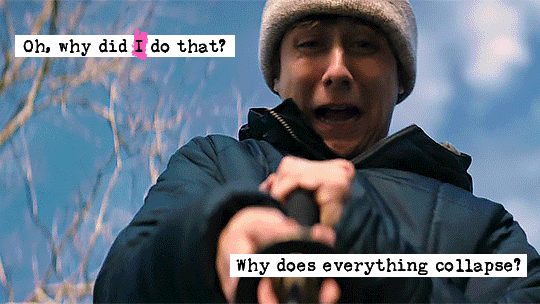
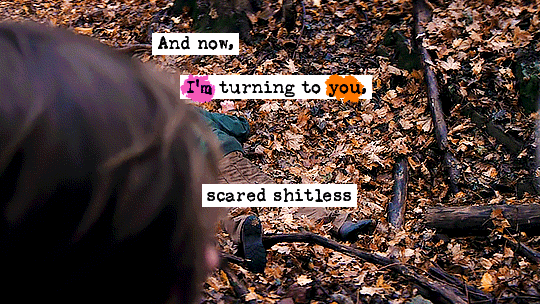
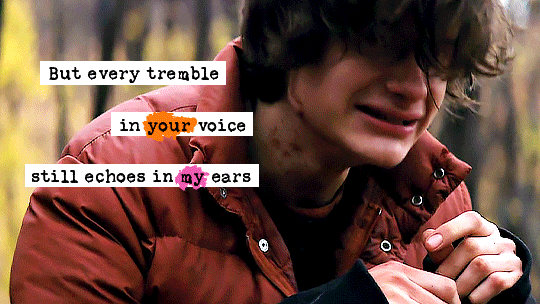
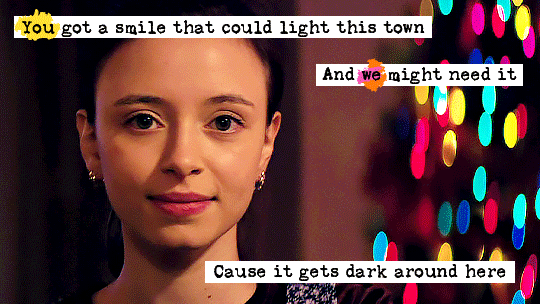
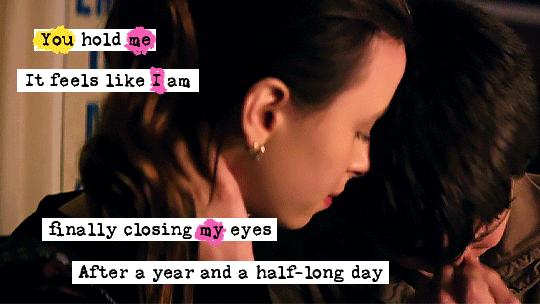
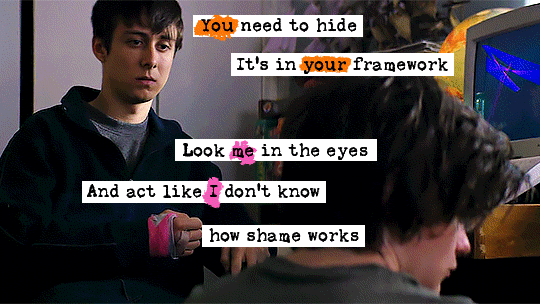
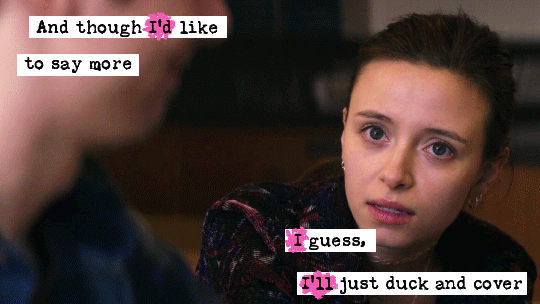
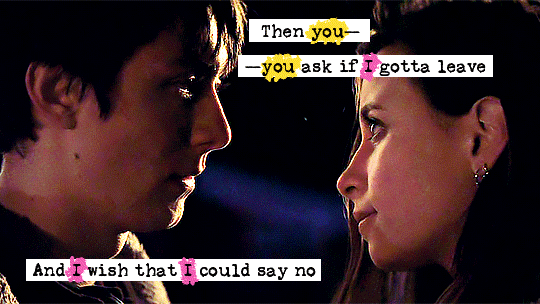
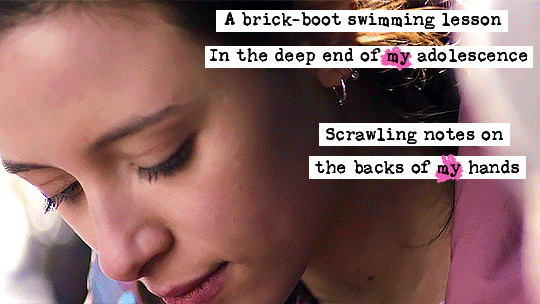

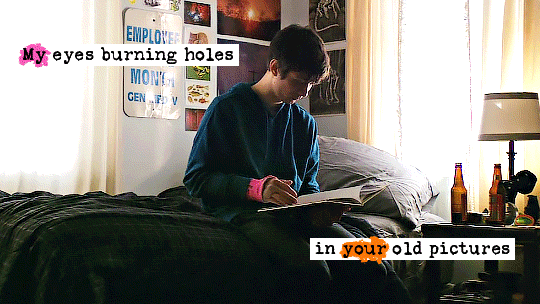
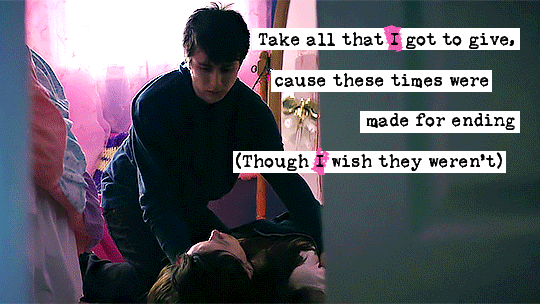
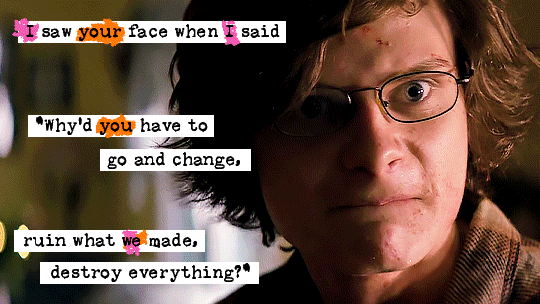
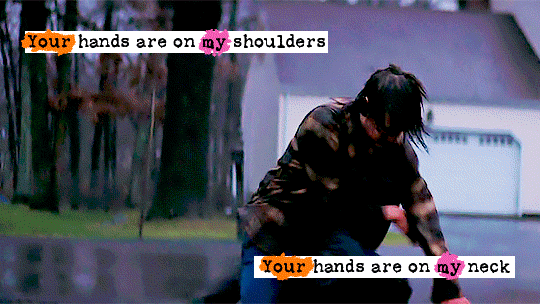

ZACH TAYLOR x MODERN BASEBALL
on JOSH TEMPLETON and ALLISON BANNISTER
[ BROKEN CASH MACHINE | ROCK BOTTOM | THE OLD GOSPEL CHOIR | THE WEEKEND | ALPHA KAPPA FALL OF TROY THE MOVIE PART DEUX (2 DISC DIRECTOR'S CUT) | EVERYDAY | HOURS OUTSIDE IN THE SNOW | NOTES | I THINK YOU WERE IN MY PROFILE PICTURE ONCE | HOME | REVENGE OF THE NAMELESS RANGER | INTERSECTION ]
#super dark times#sdt#zach taylor#josh templeton#allison bannister#sam edits#the number of songs and gifs don't line up bc i used multiple bits of a few of the songs (bcm rock bottom & revenge of the nameless ranger)#anyways was having a 'listen to mobo's dicsography' day + some lines stood out... idk if this is comprehensible to anyone else but oh well#zach is simply sooo mobo coded To Me </3 originally i was gonna do 'zach & josh' and 'zach & allison' as separate sets but i kinda liked#the combo... it's all so twisted up together man!!!! everything happening with josh/the daryl situation being this Thing that blocks#zach from feeling able to pursue her and all (as most clearly laid out during the sex dream where the sword & josh loom over them lol)#oh and if its unclear: pink = zach (bc his cast <3) orange = josh (bc his coat) yellow = allison (bc her sunflower shirt & her daisy shirt)#(even tho those aren't pictured here. those are the costuming things tht stick with me for her)#also sorry this is LONG but i simply have. lots of thoughts. believe it or not this is the pared down version i originally had even MORE
36 notes
·
View notes
Photo



you're cheating, p'phayu!
love in the air episode 5
#asianlgbtqdrama#bldramaedit#love in the air#love in the air the series#noeul nuttarat#boss chaikamon#thai drama#i am on the side that found the singing a little cringey#it was just a long scene lmao#but still super sweet!!#i am weak for 'darling'#also i ran out of time and didn't get to gif everything i wanted for ep 5#oh well
399 notes
·
View notes